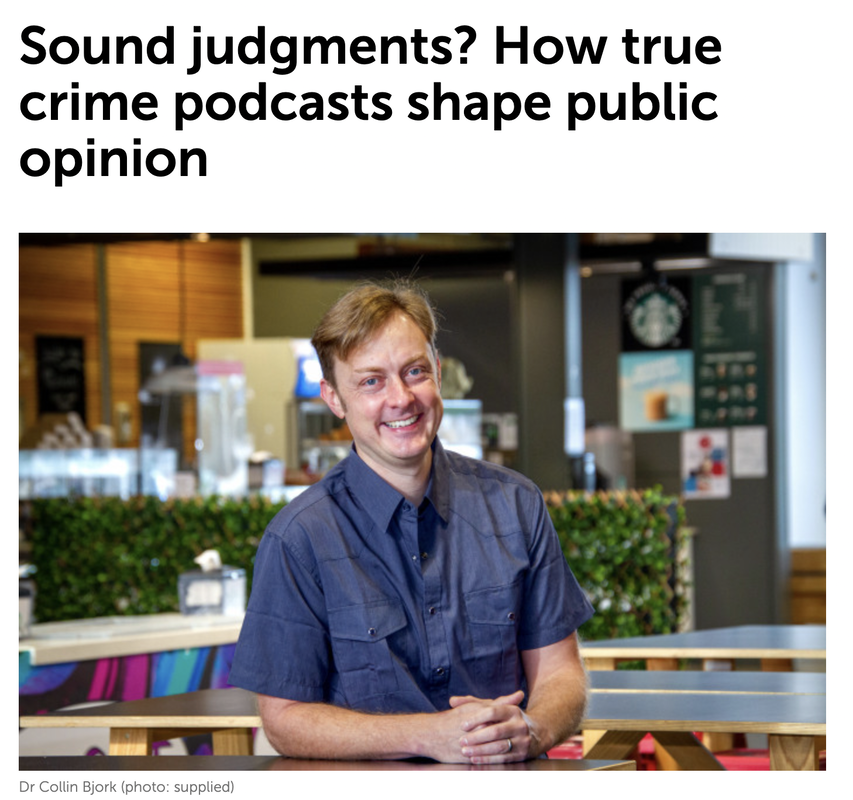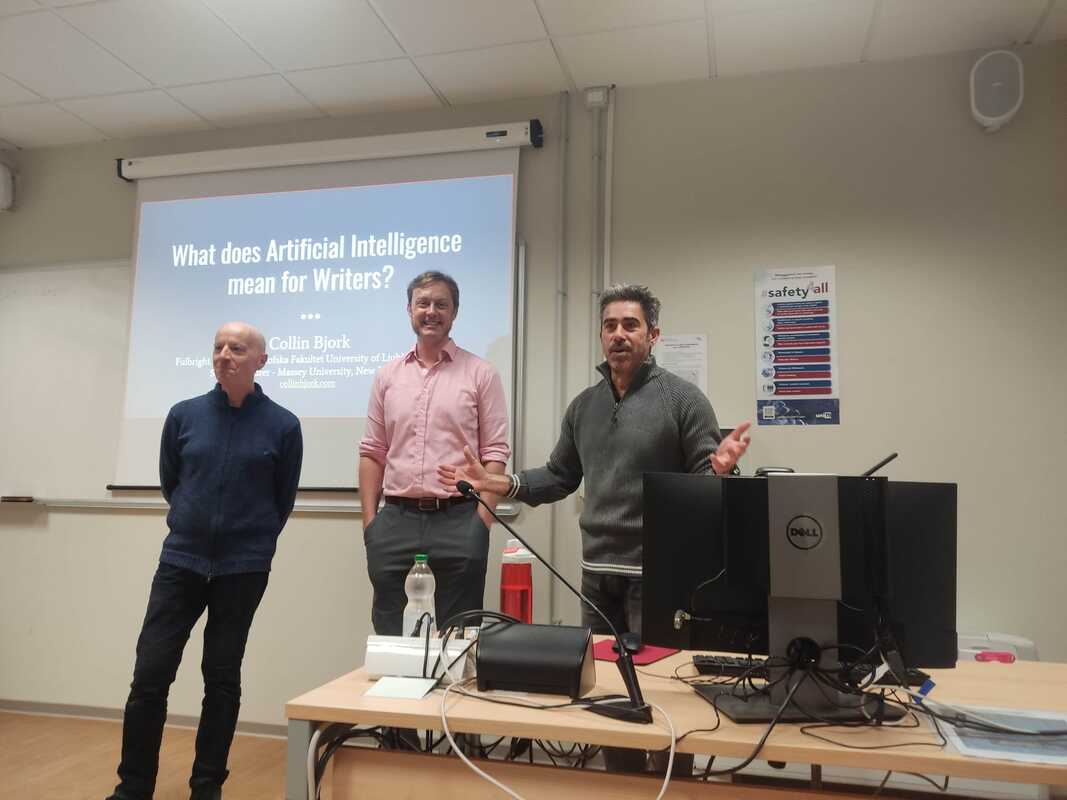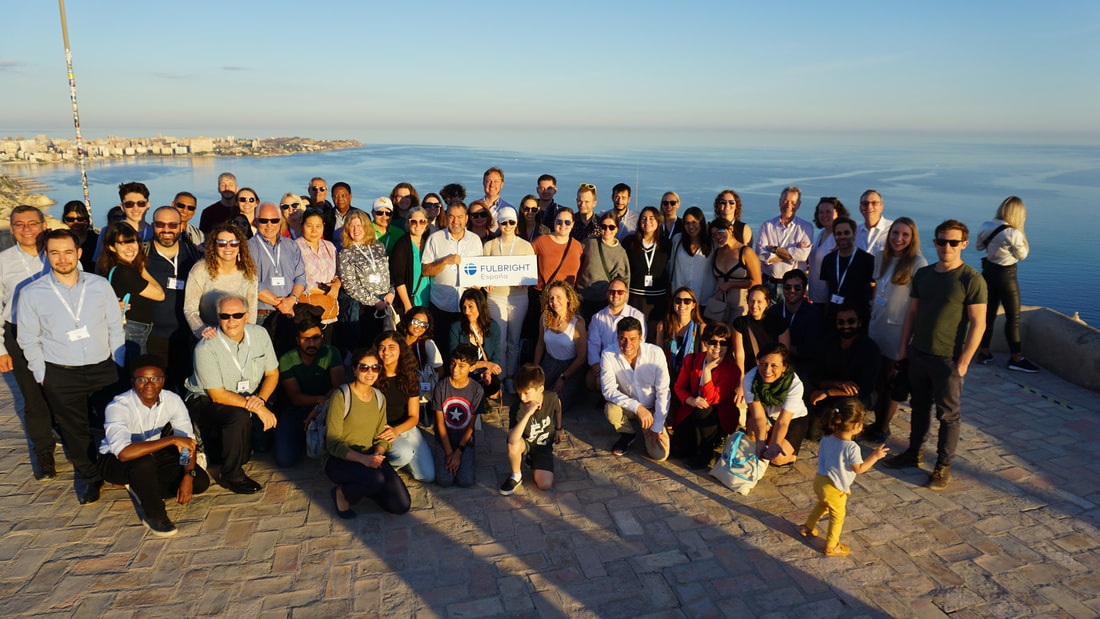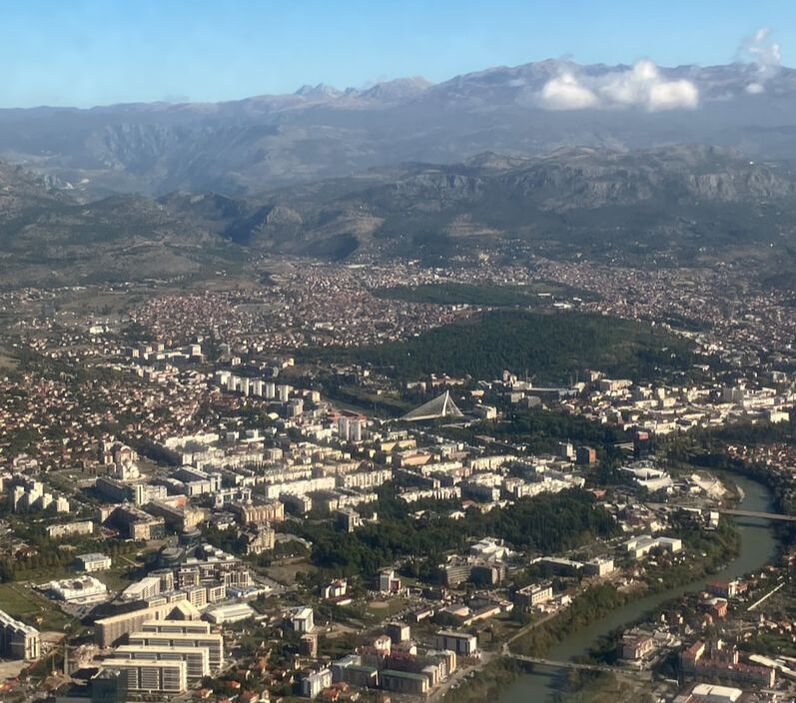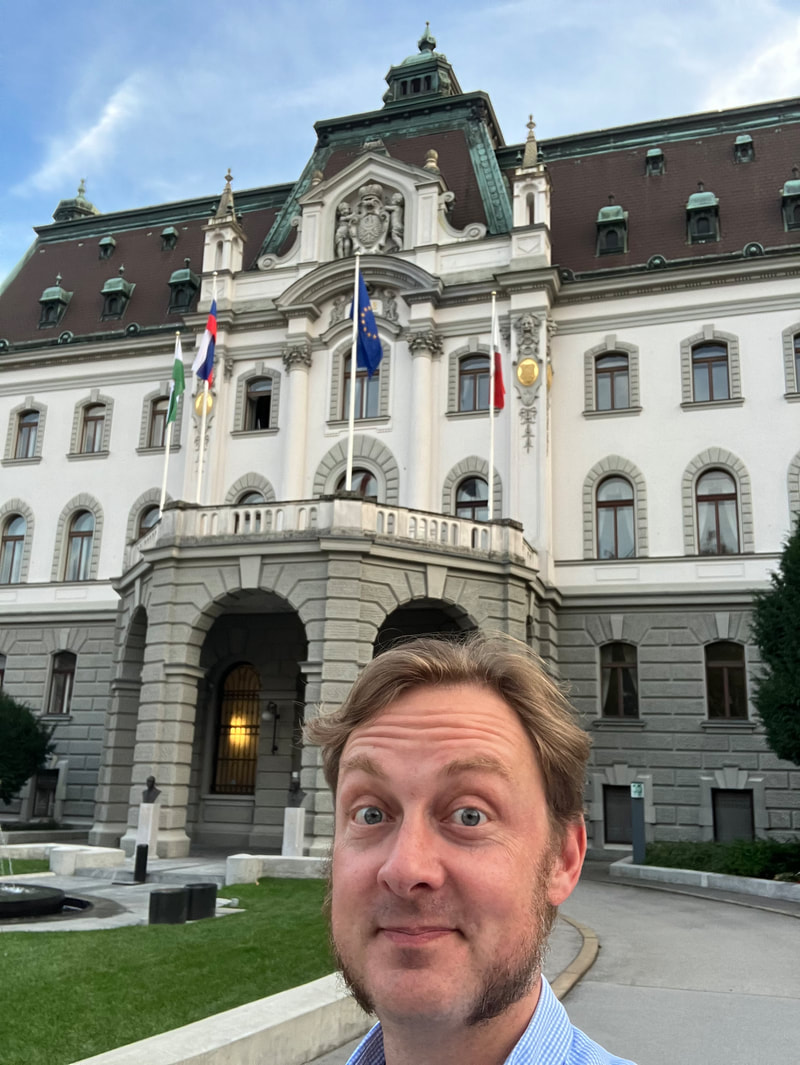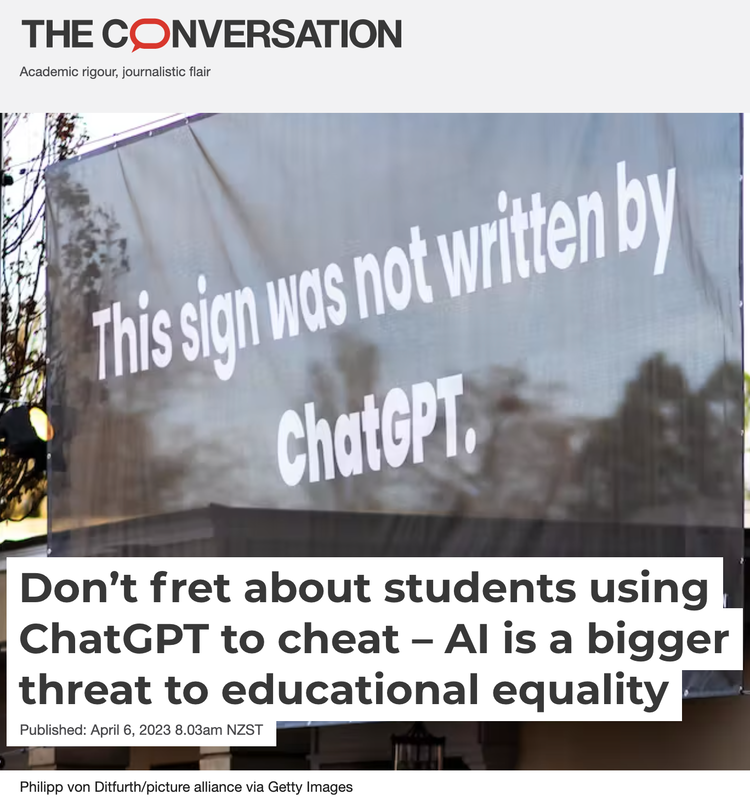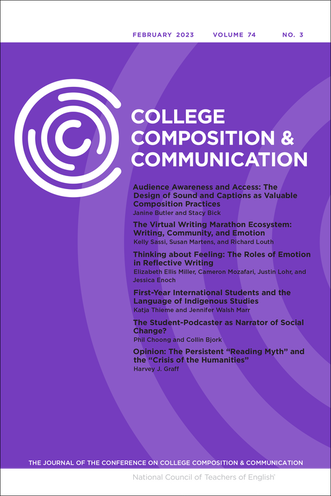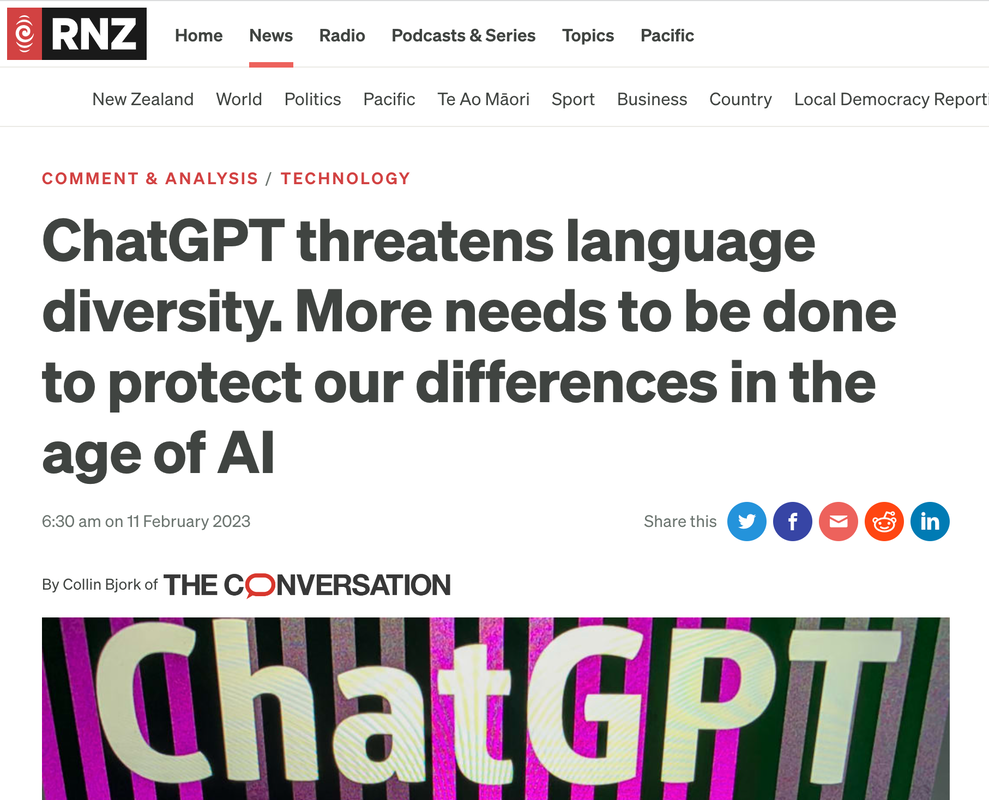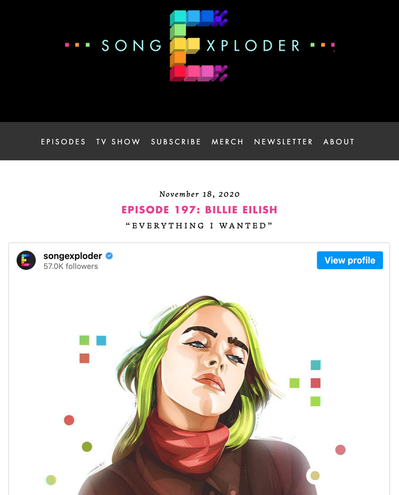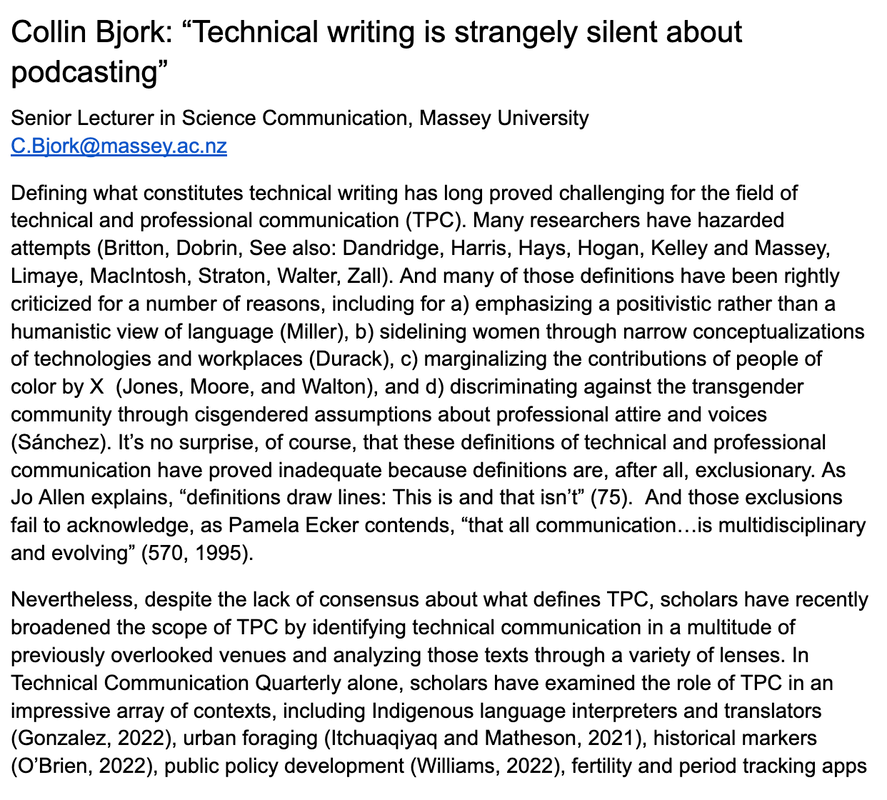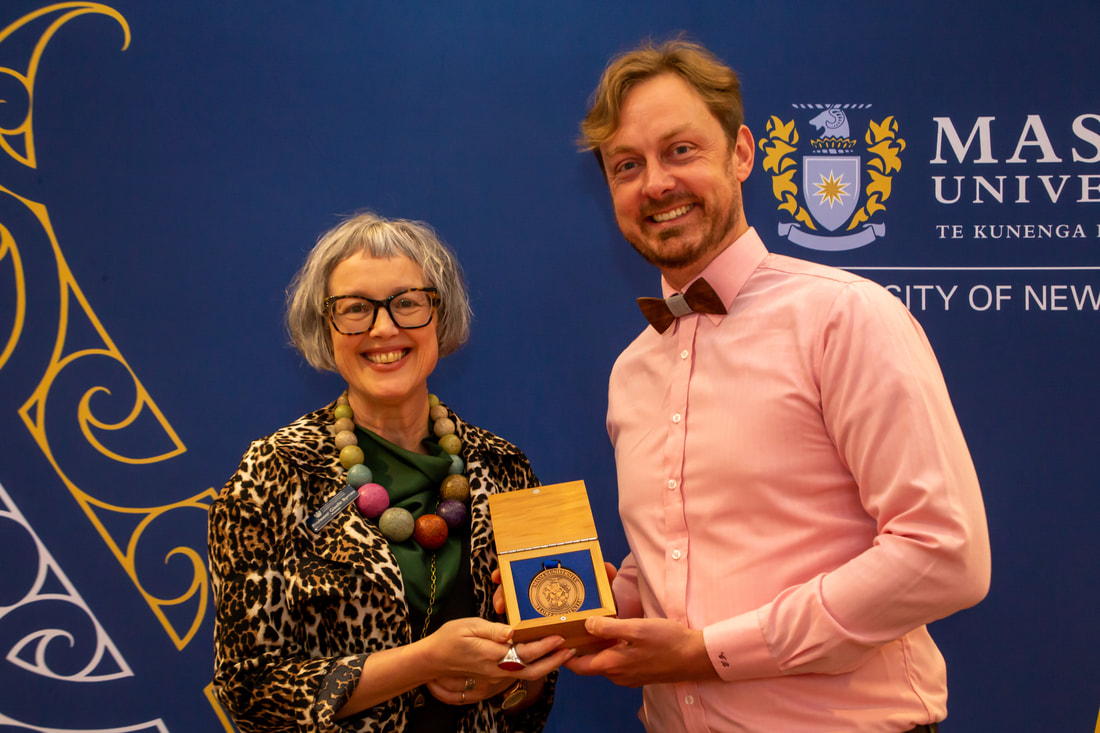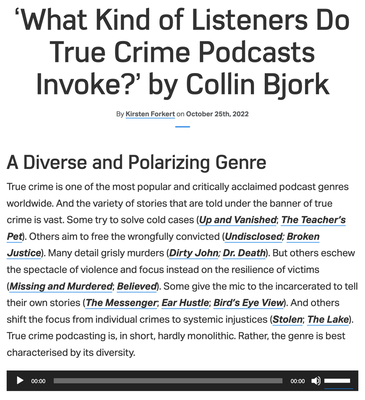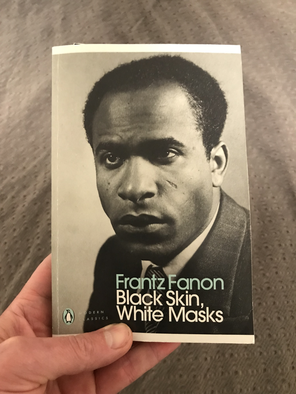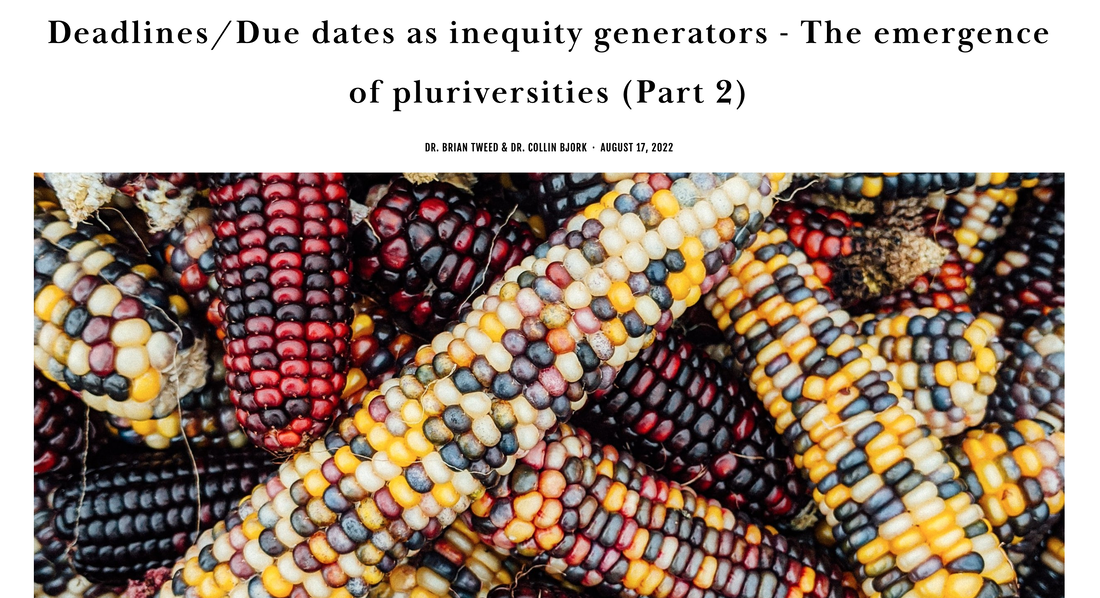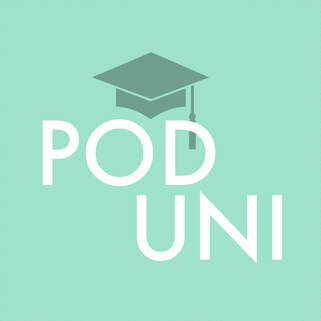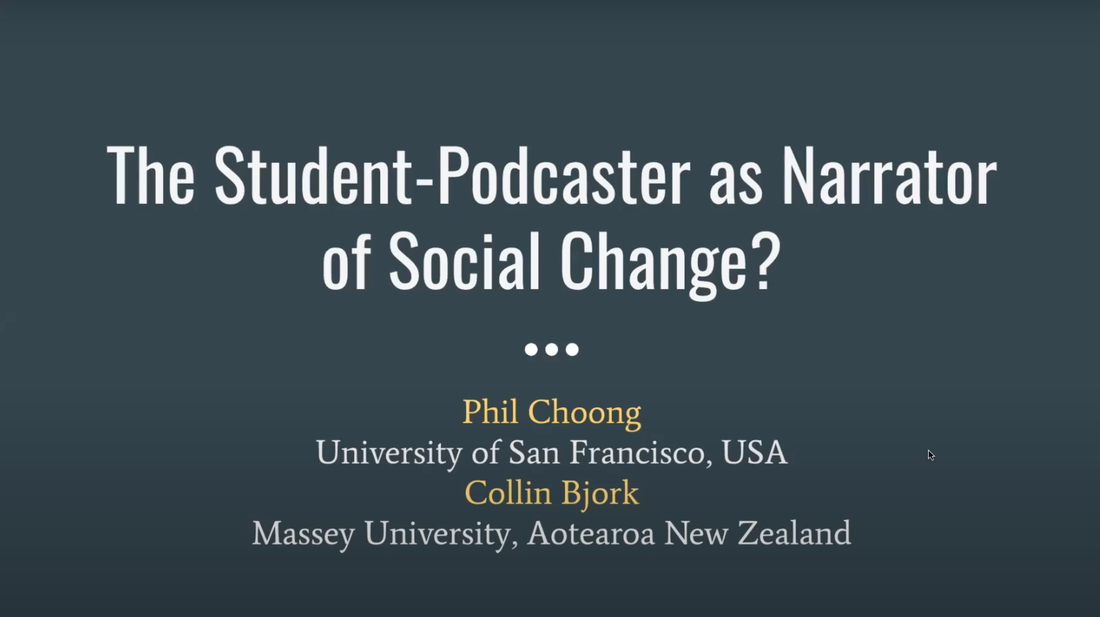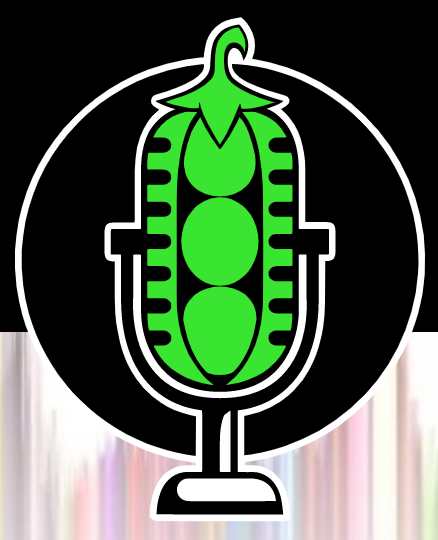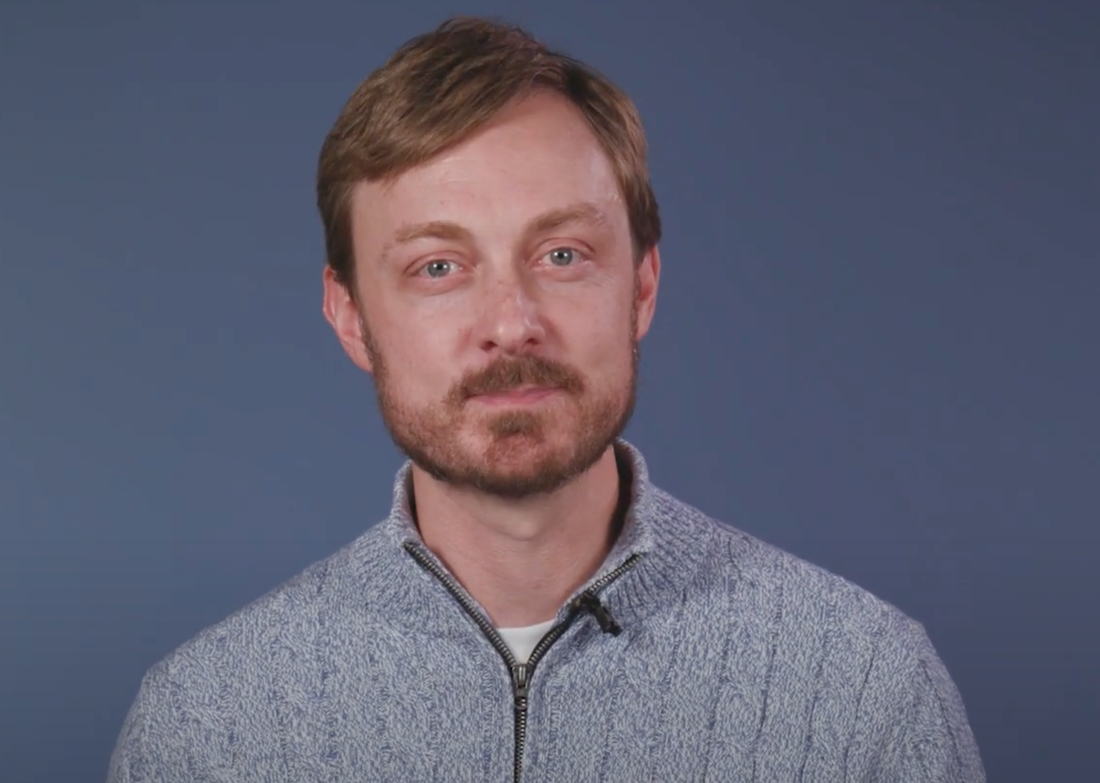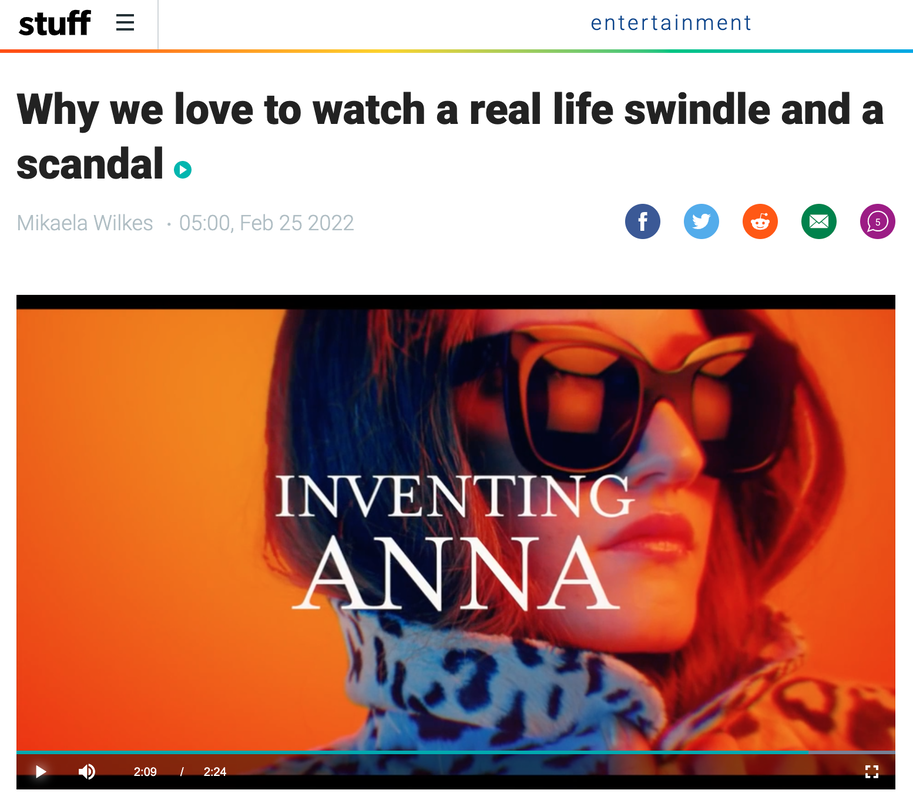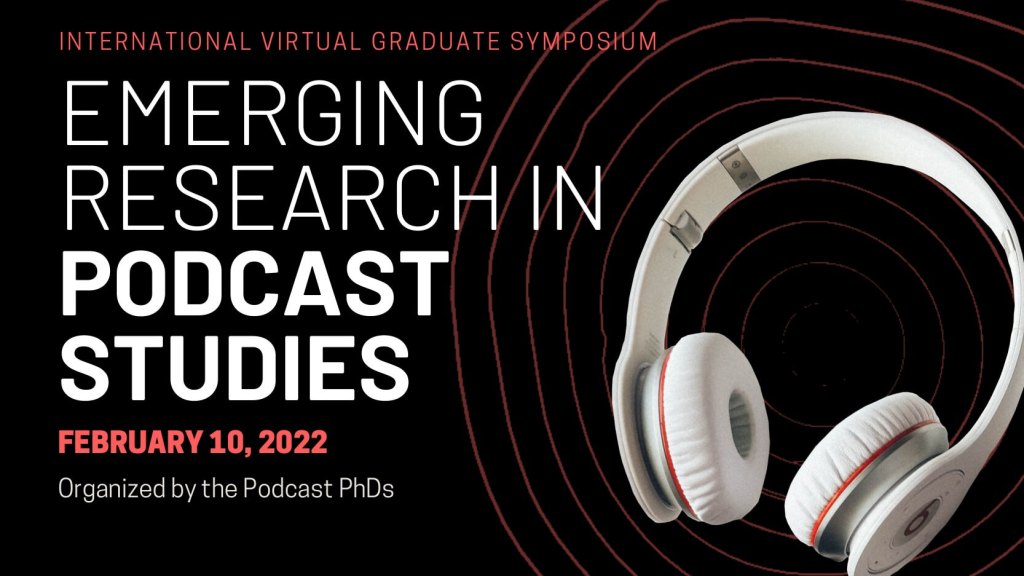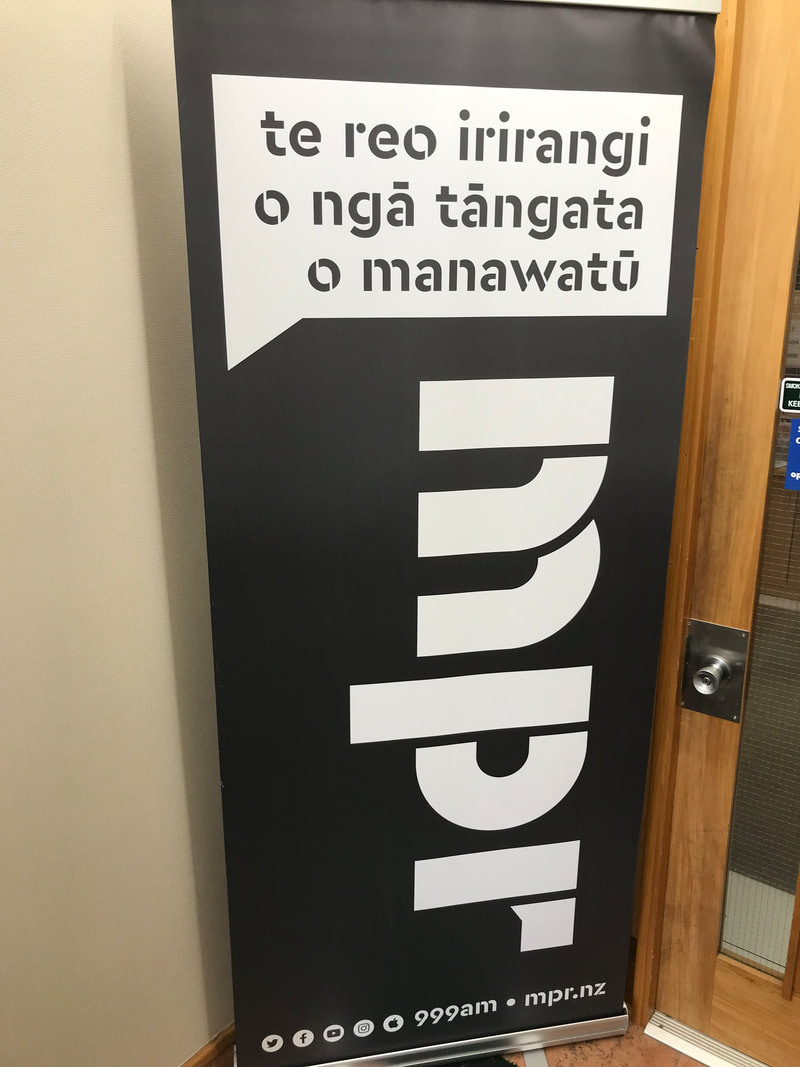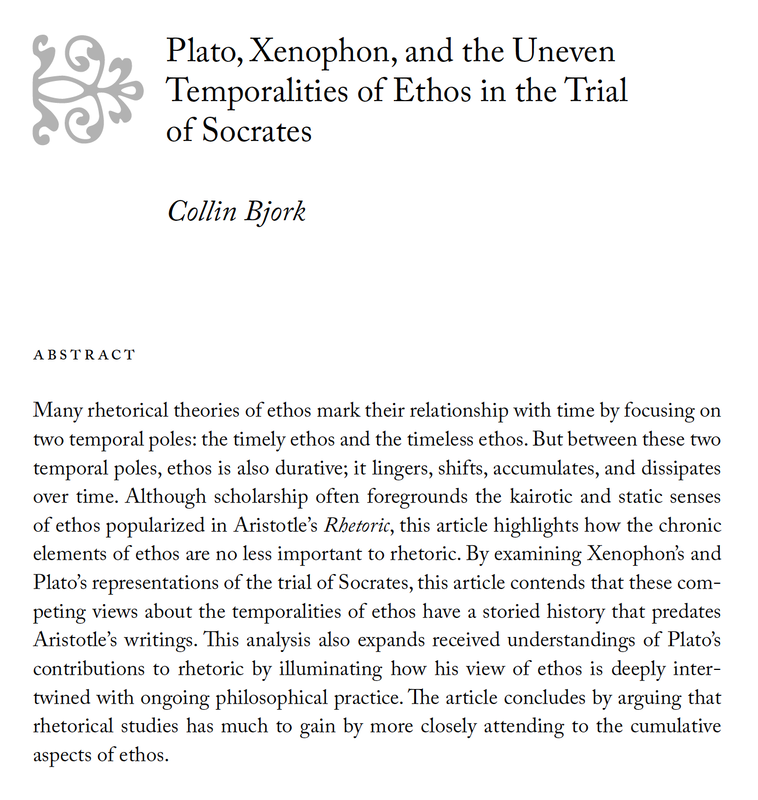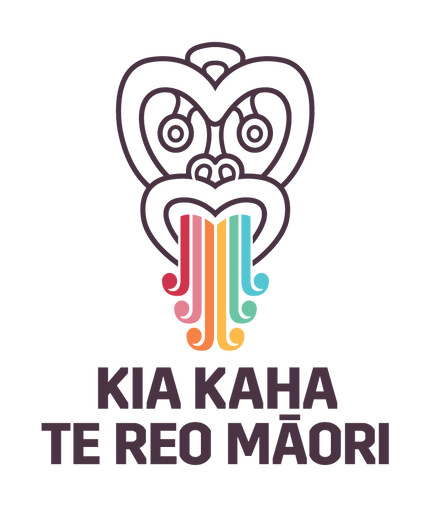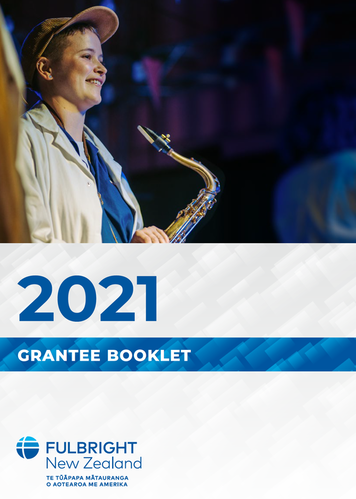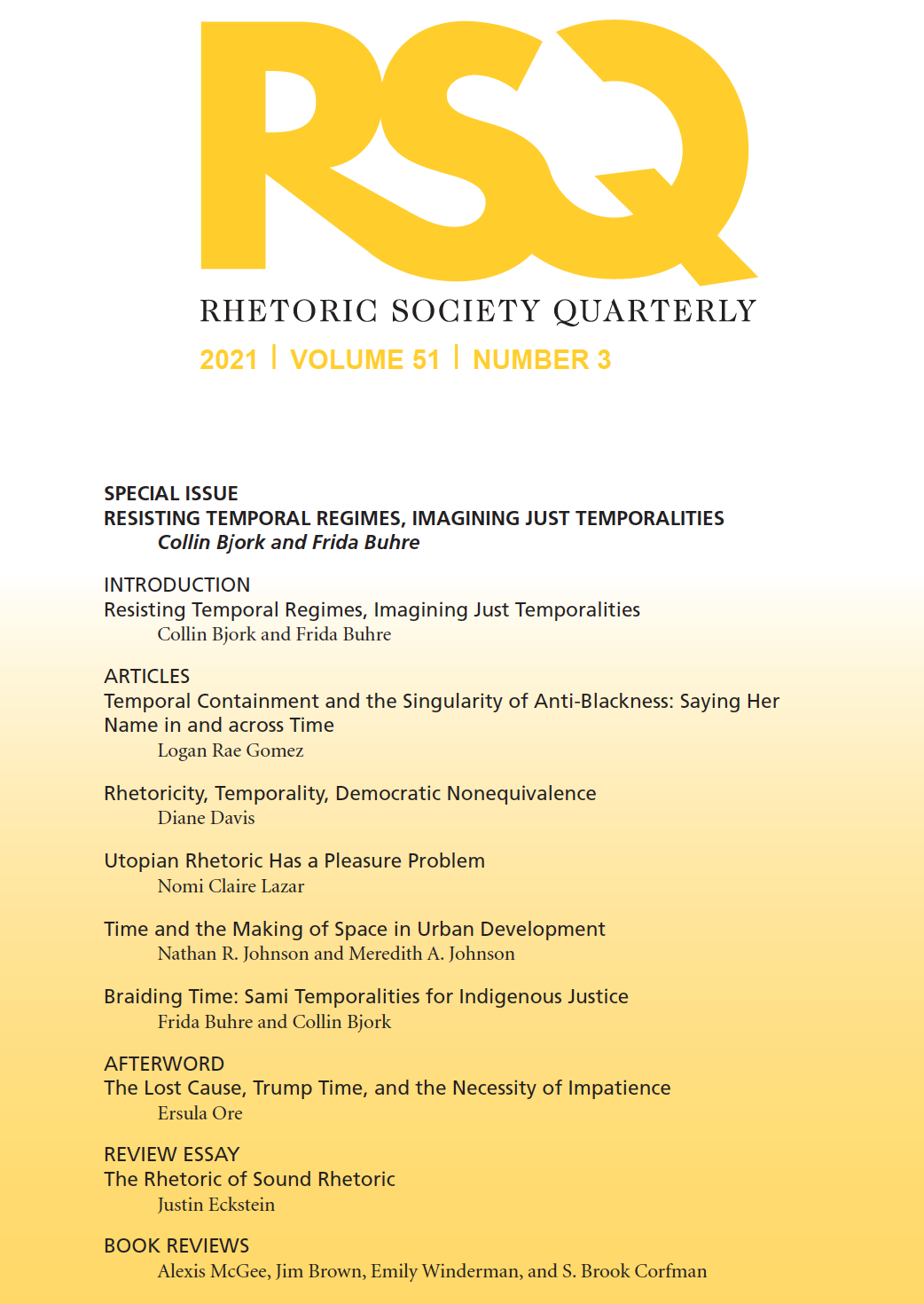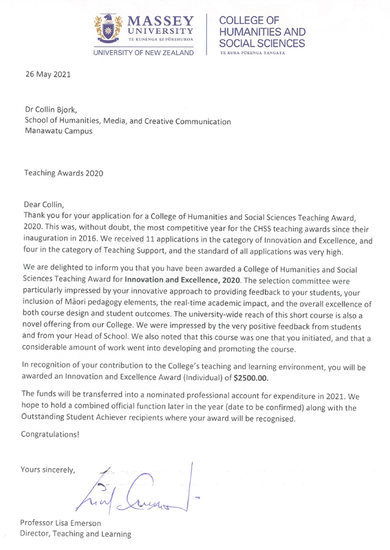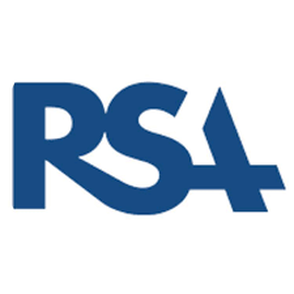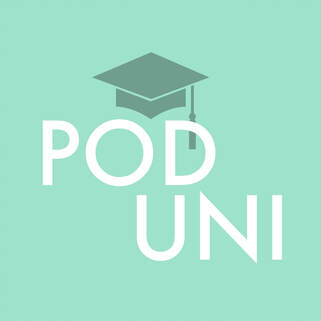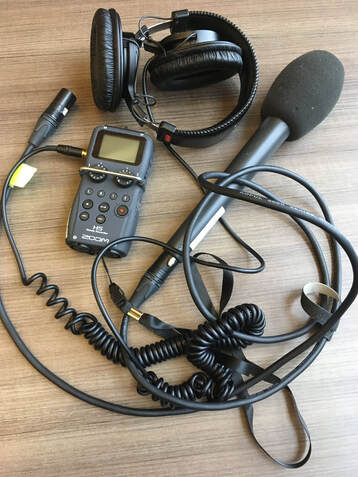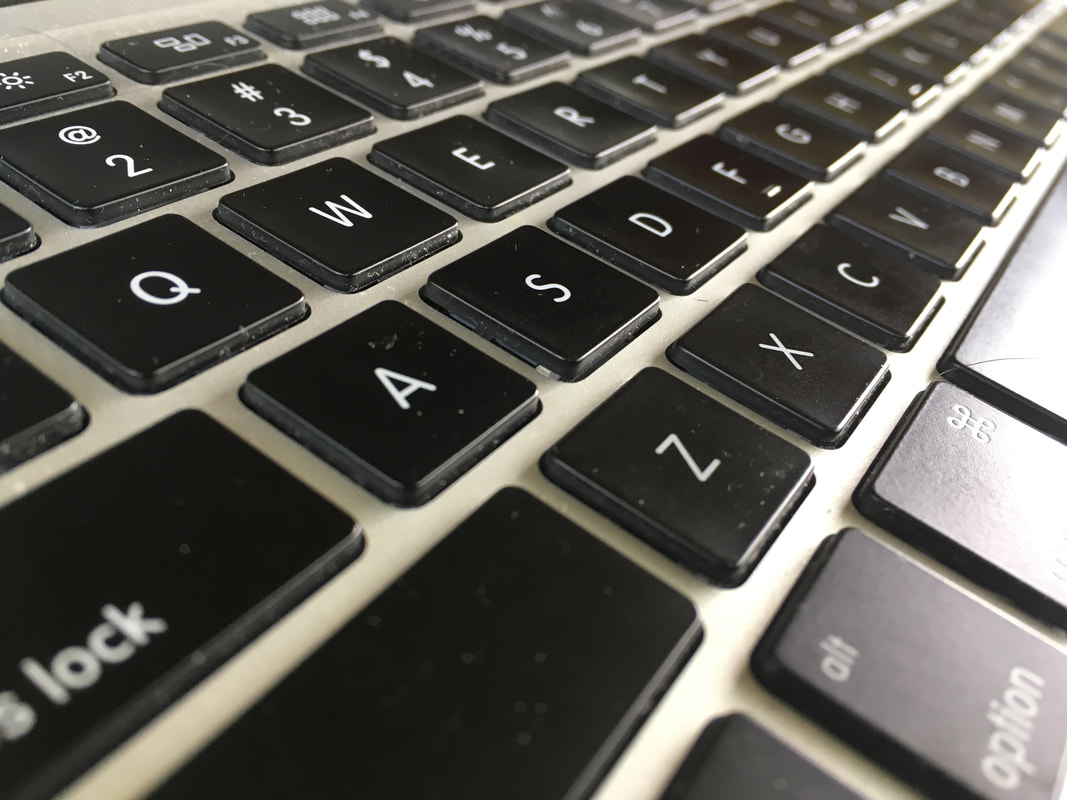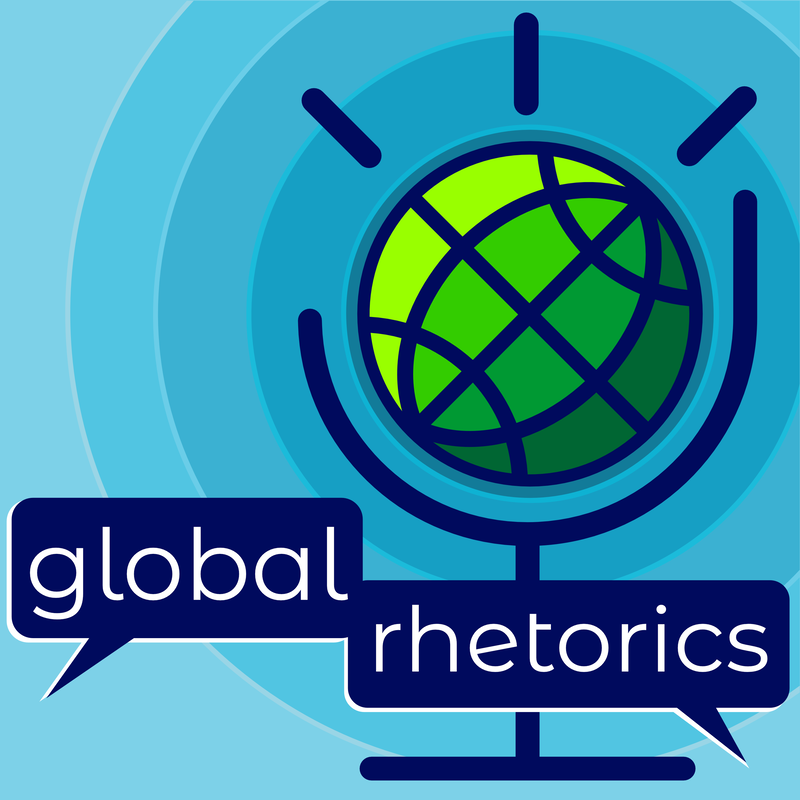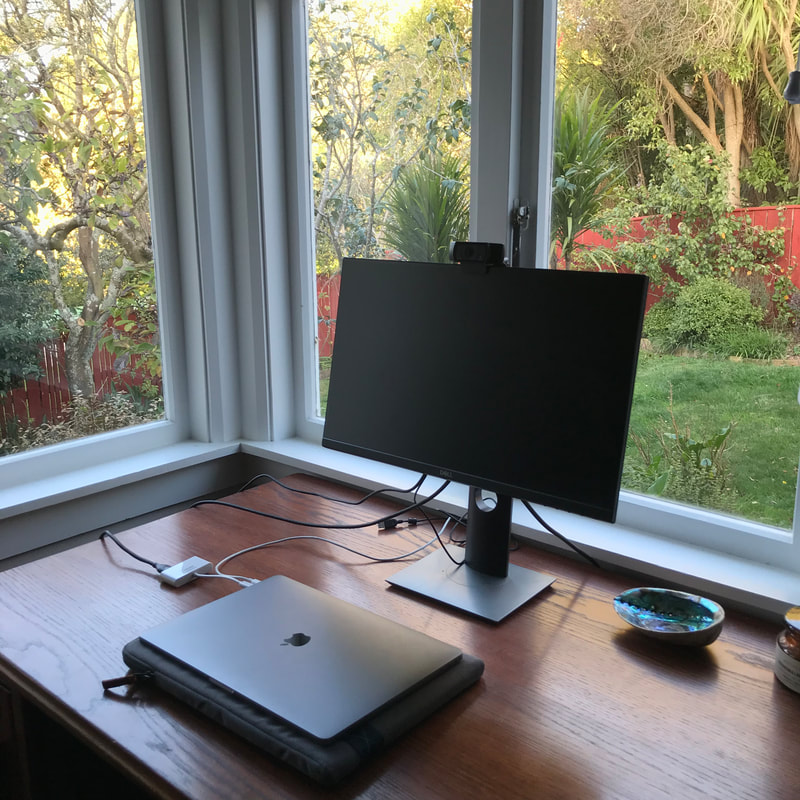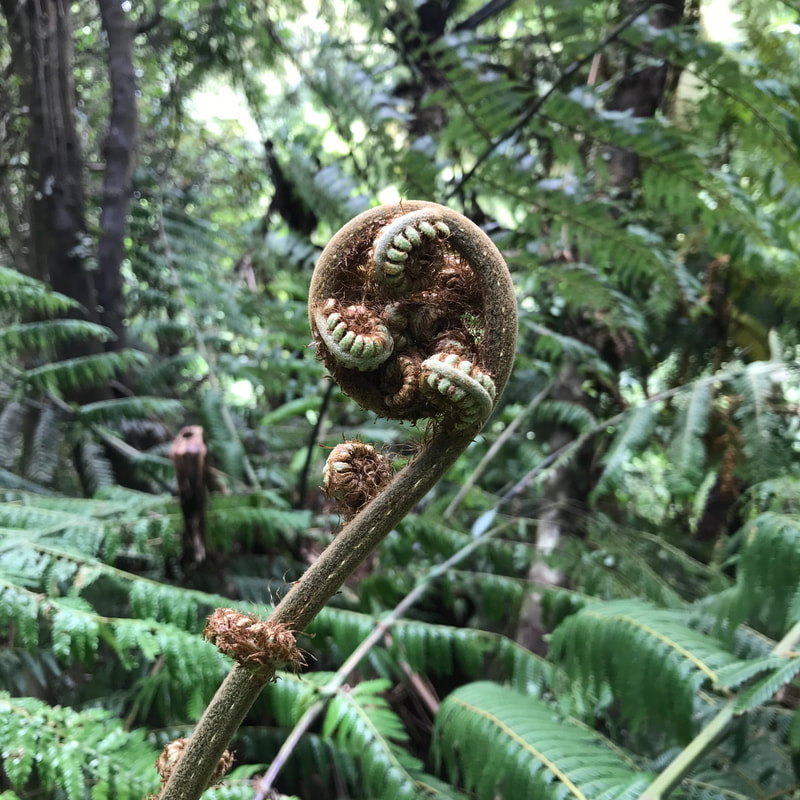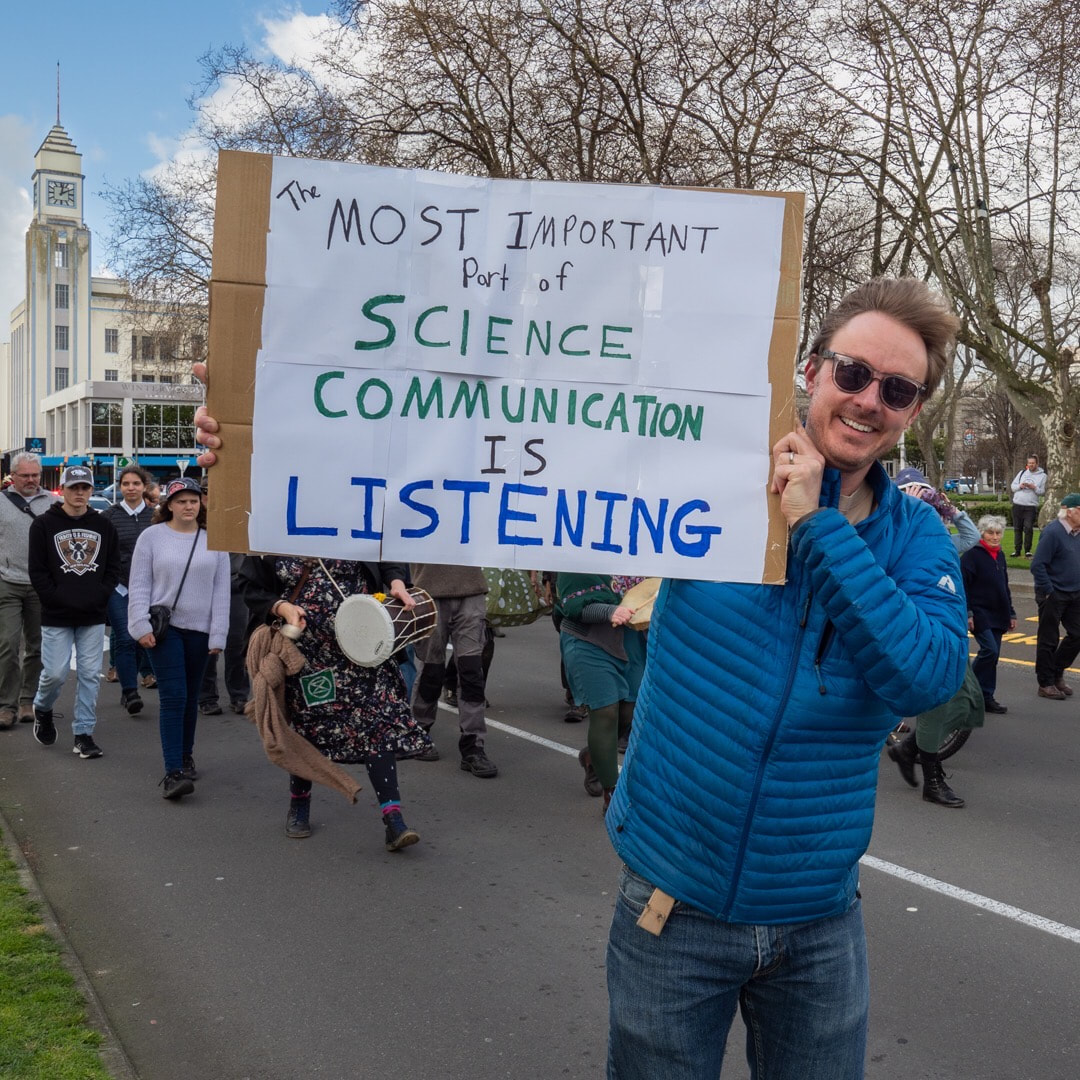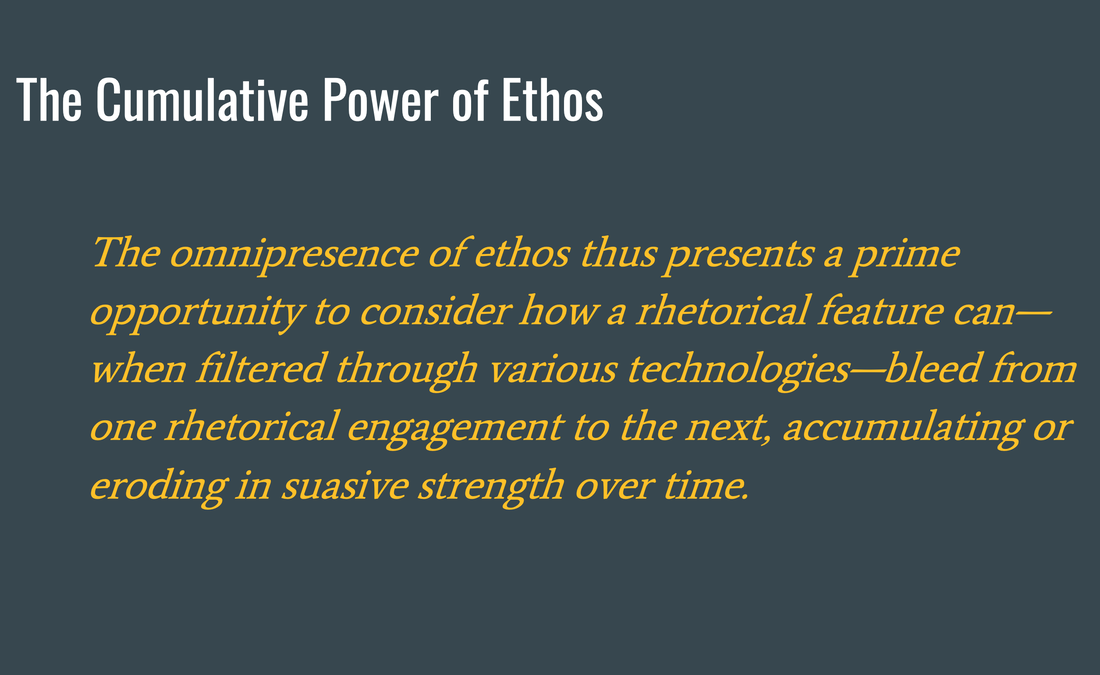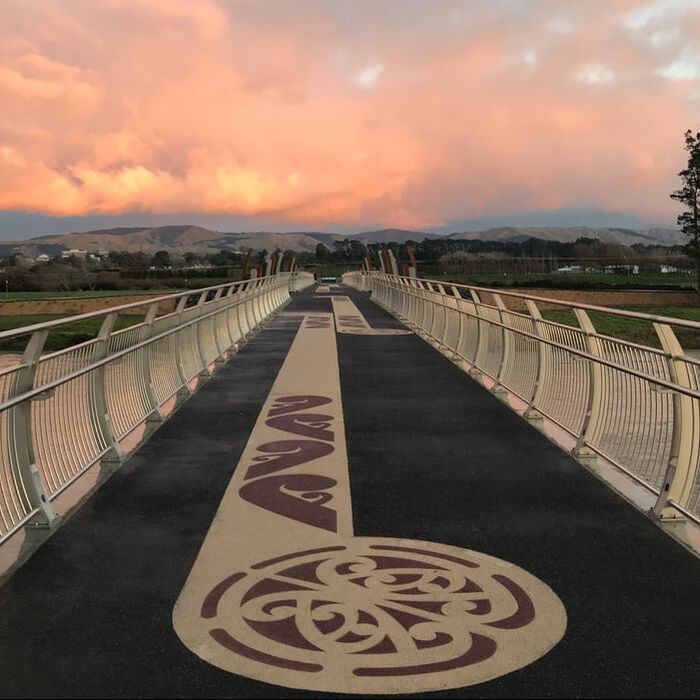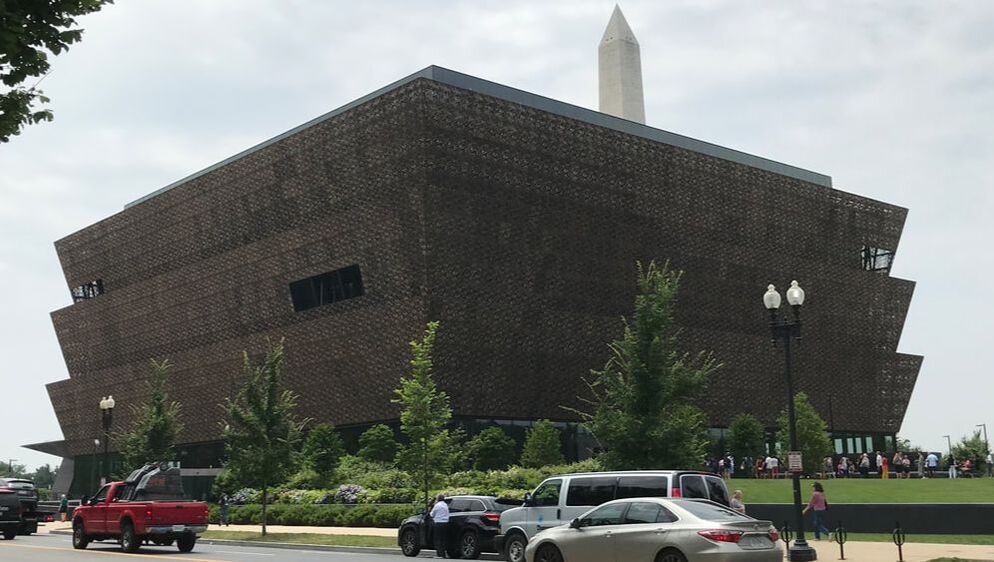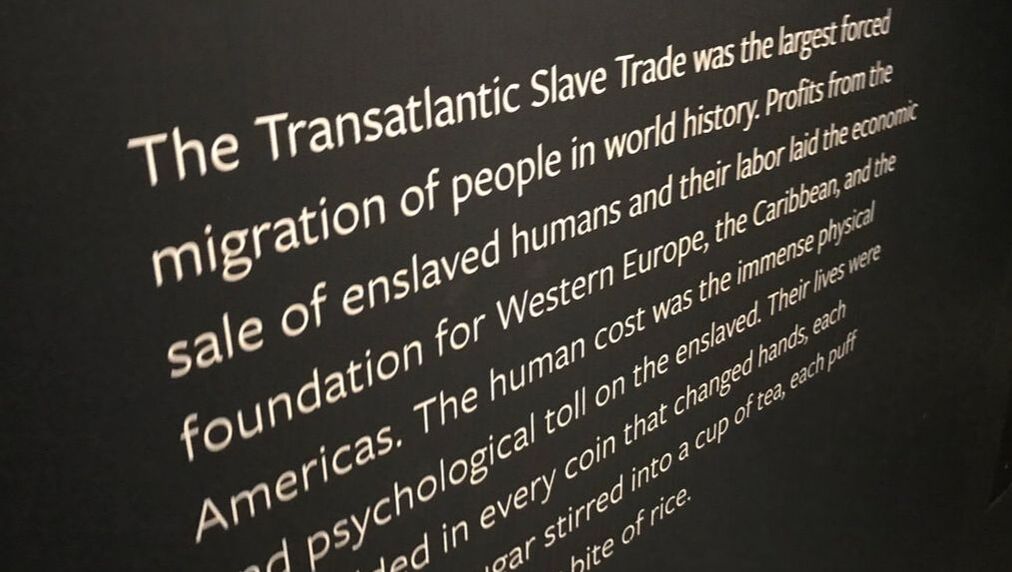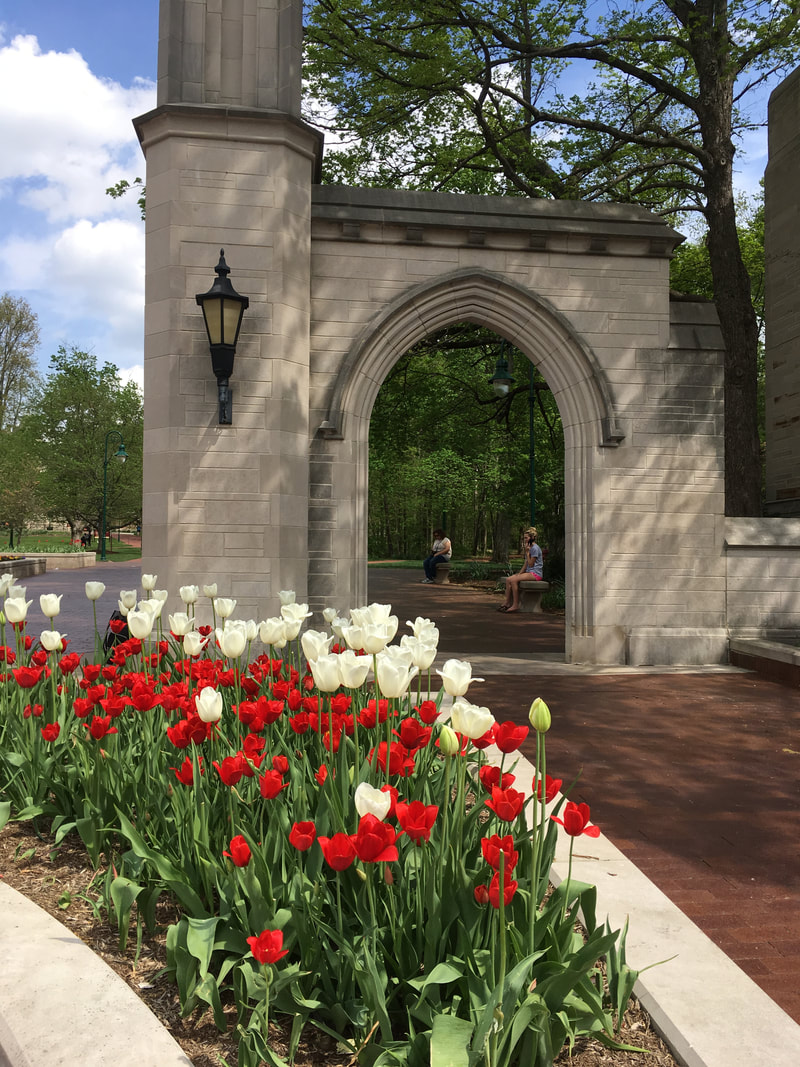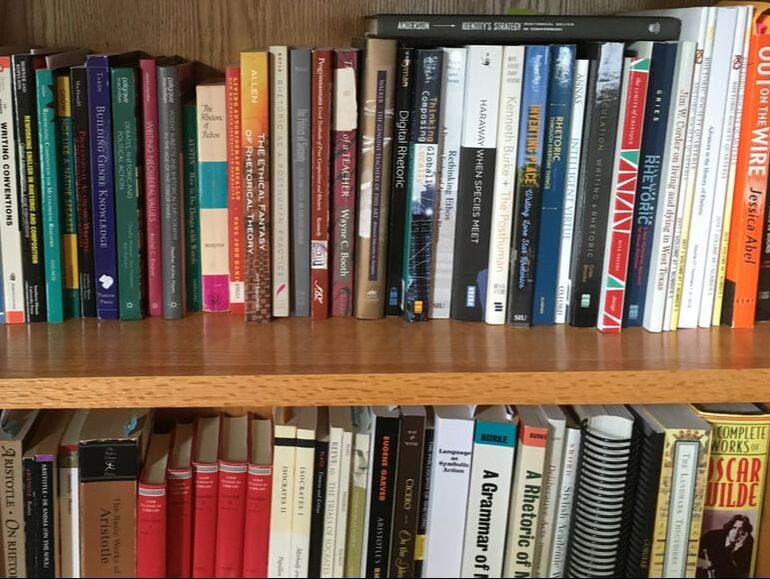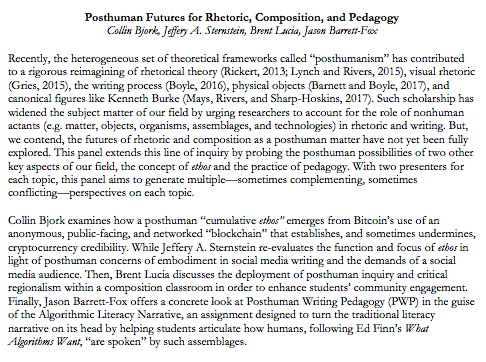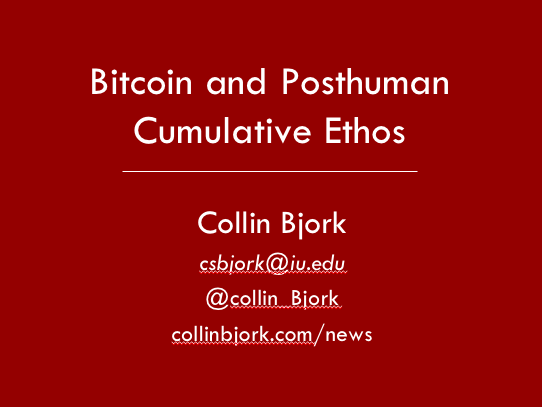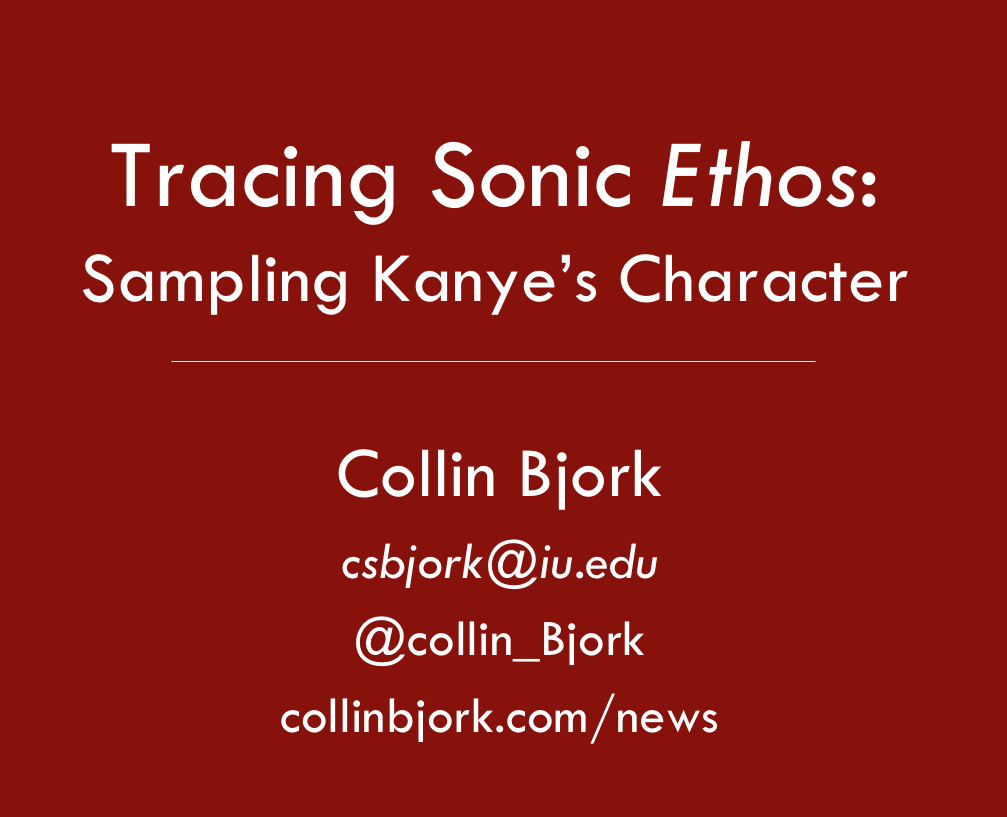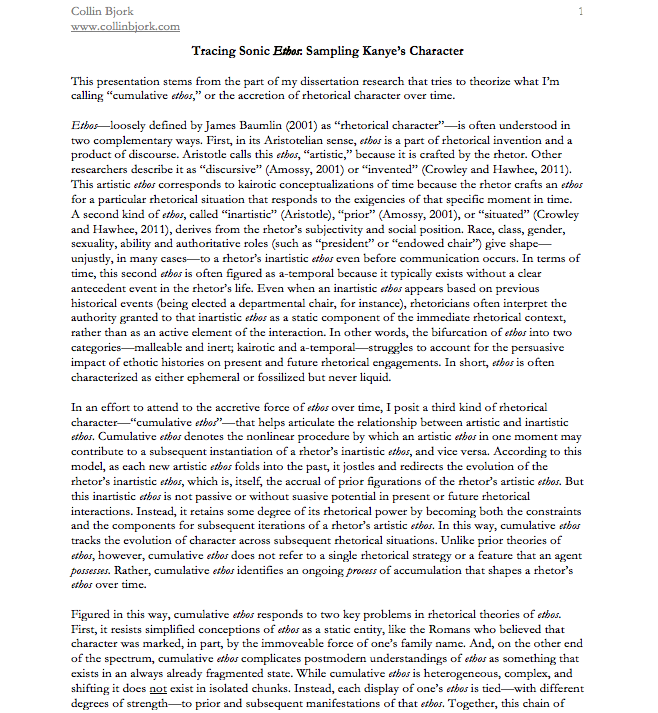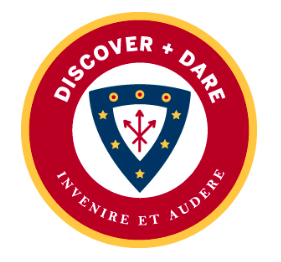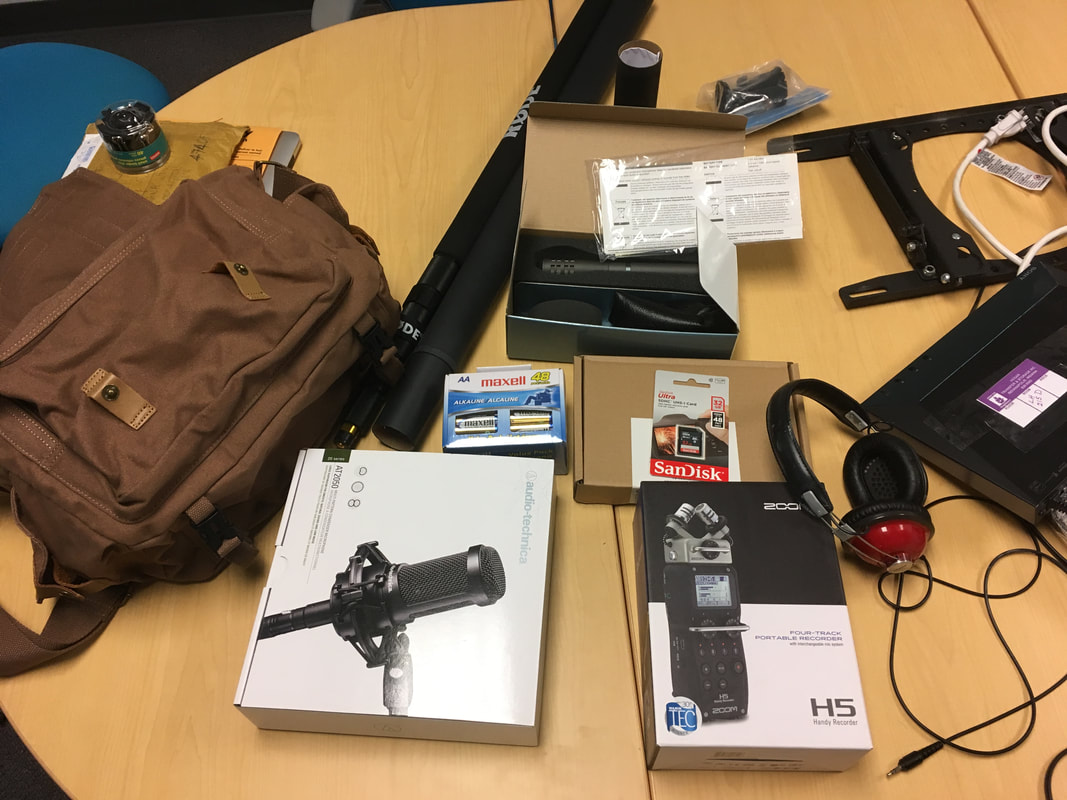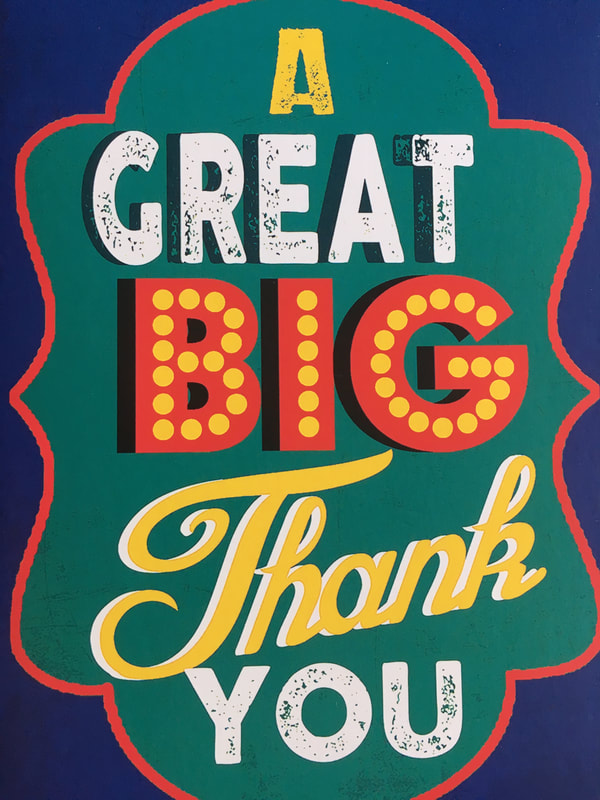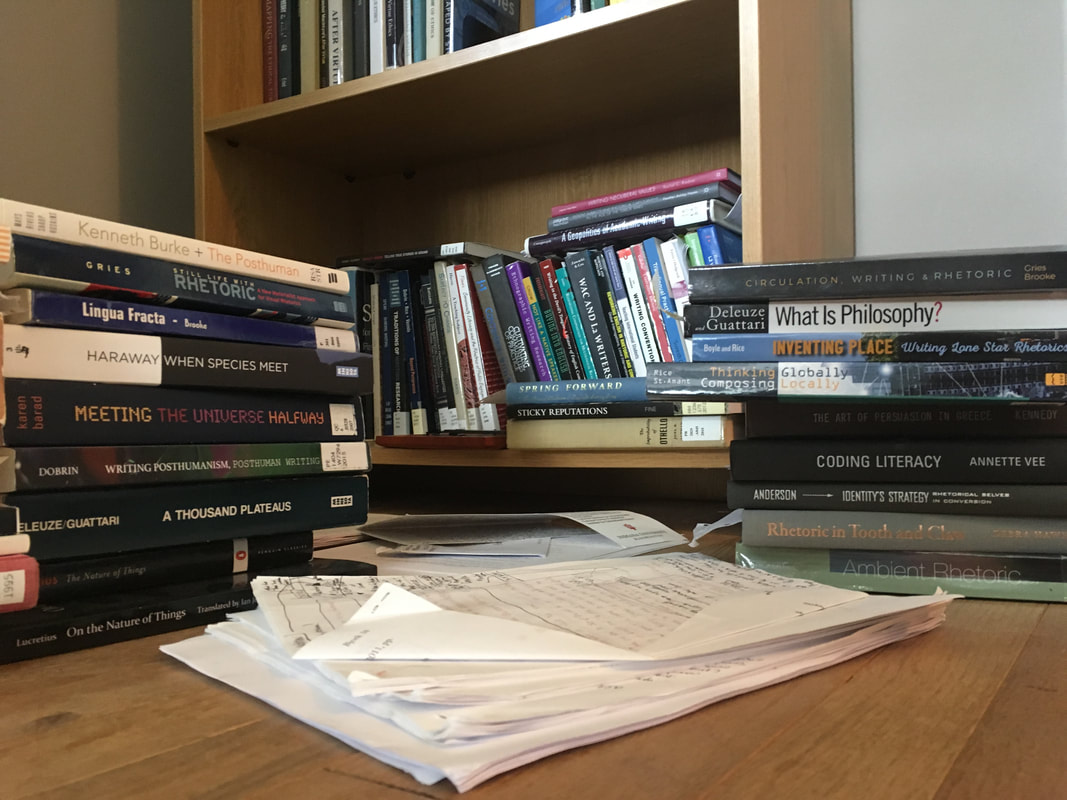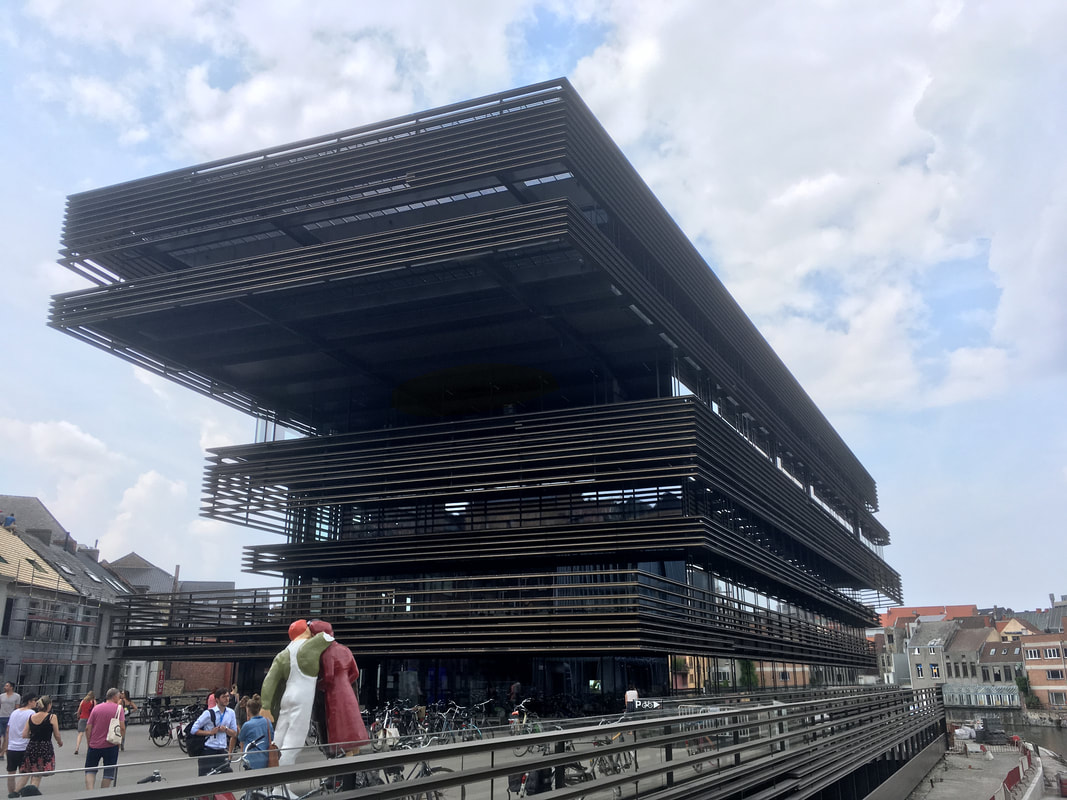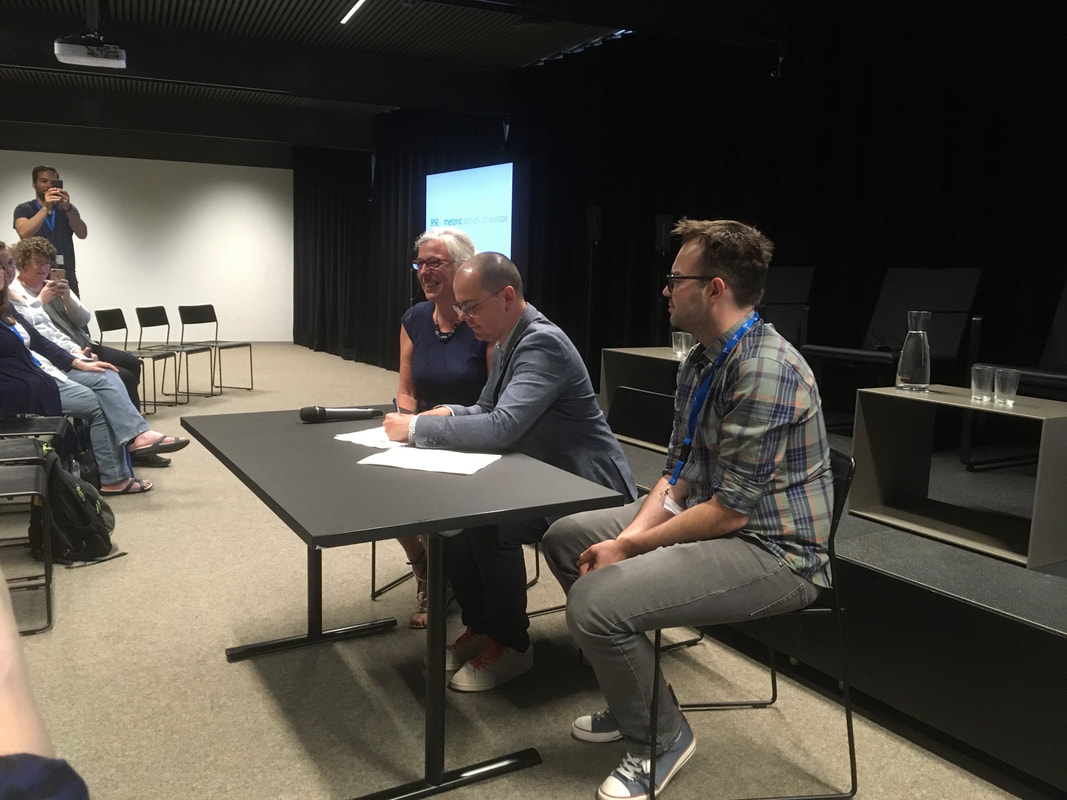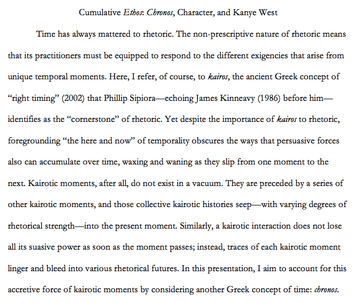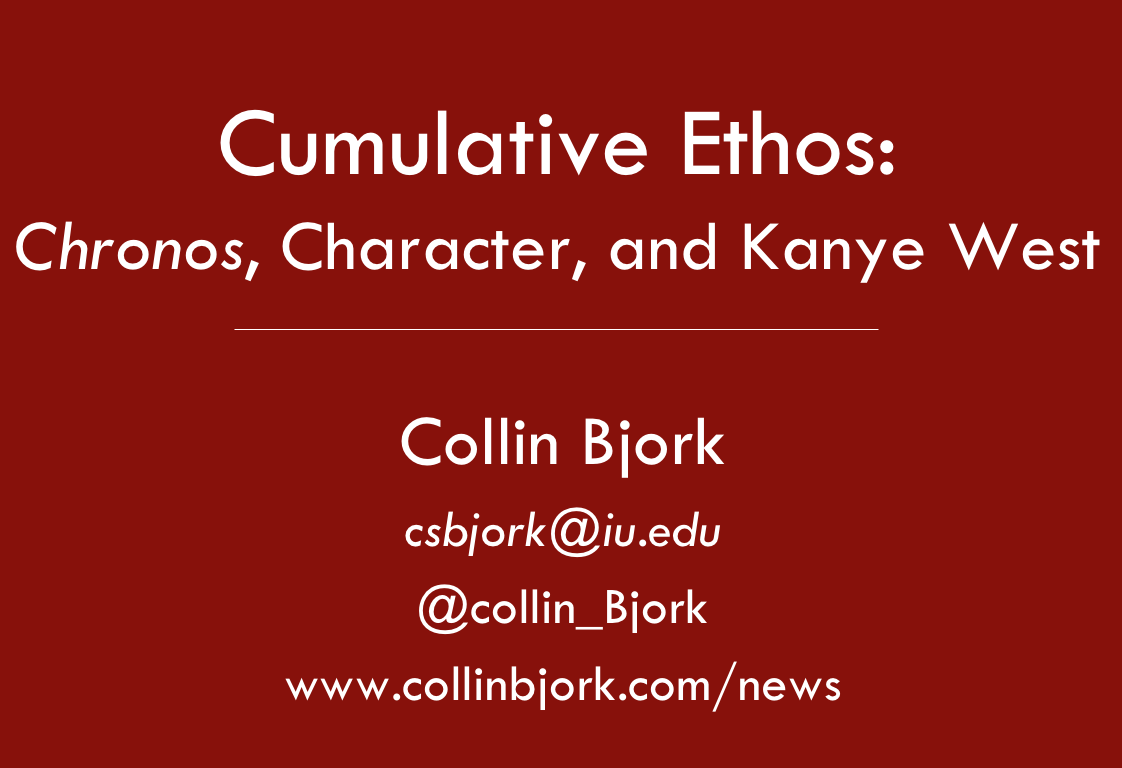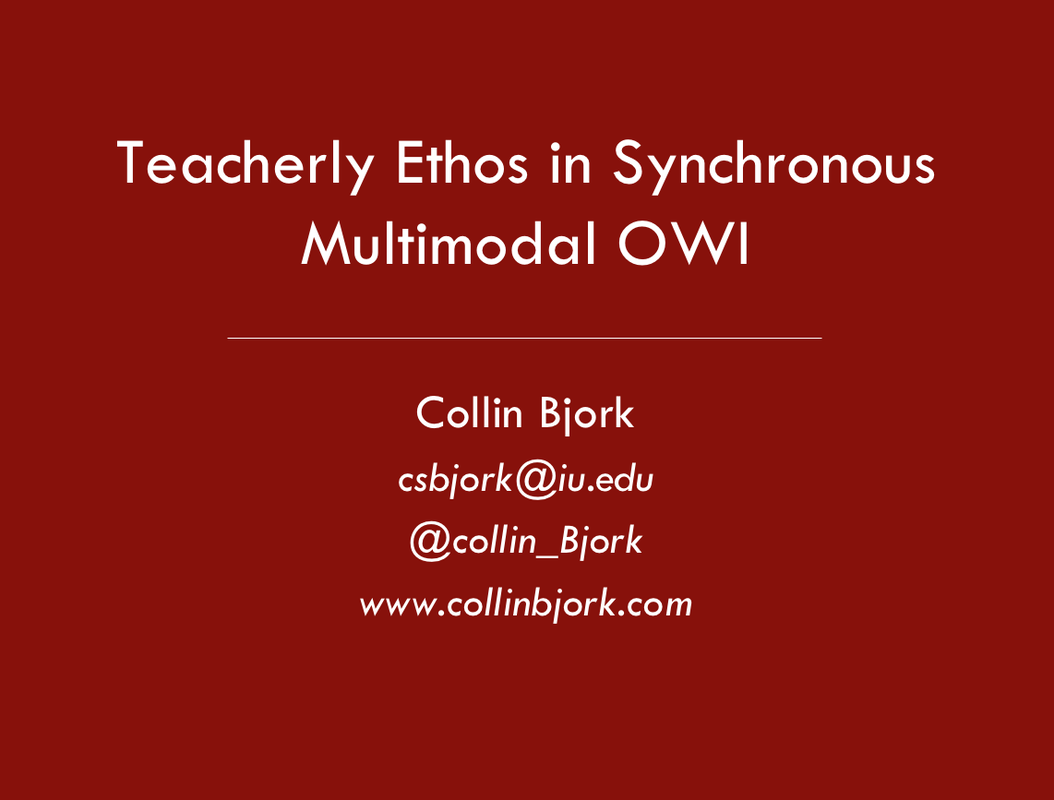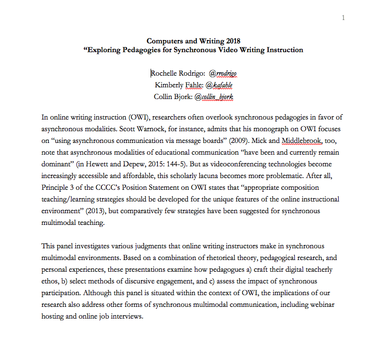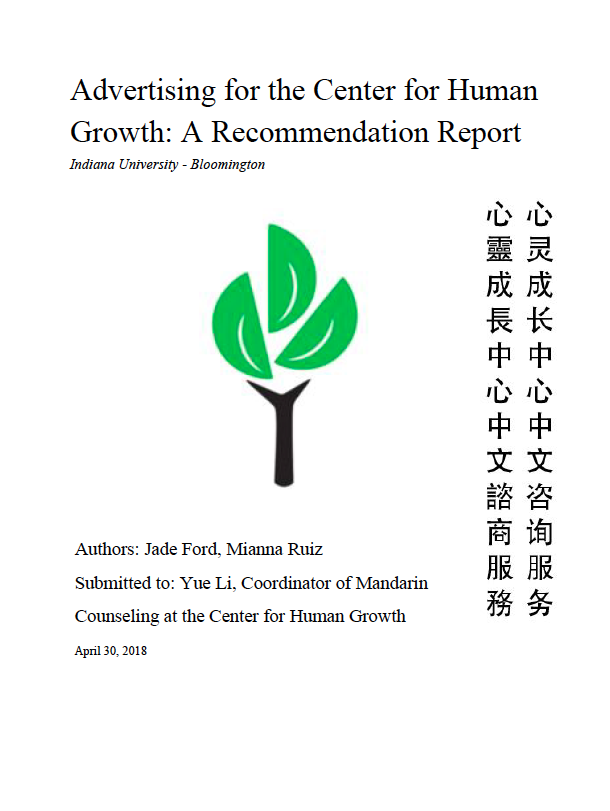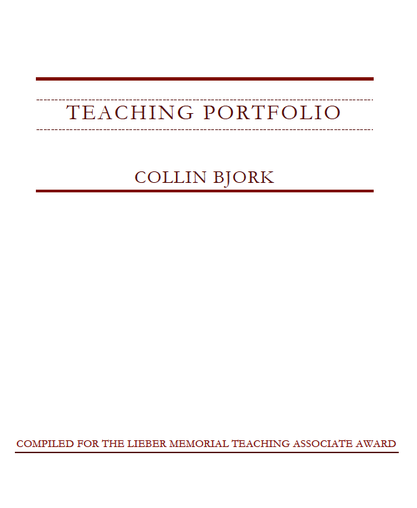I'm always up to something new. Check back frequently for the latest updates!
Integrating usability testing & digital rhetoric in owi
|
My article about digital rhetoric and usability testing in online writing courses has now been made open-access! This article takes a critical perspective on usability testing and argues that digital rhetoric is essential to helping instructors see the power dynamics at play in online writing courses. This piece was first published in Computers and Composition in 2018. But given how much teaching remains online after the Covid-19 pandemic, it seems more relevant than ever. Enjoy reading it!
|
MARSDEN grant - JAN 2024
|
At the end of 2023, I learned that I won a prestigious Marsden Fast-Start Grant. Starting in 2024, this grant provides 3-years of funding for me to study the ways that true crime podcasting reflects and reshapes public opinion. True crime is one of the most popular -- and problematic -- podcast genres. It often generates heated debates about right and wrong, good and bad, criminals and victims. My research will study how these podcasts (and the public debates about them) reveal society's shifting values.
|
GUEST LECTURES IN TRIESTE, ITALY - dec 2023
|
Recently, I gave two guests lectures about artificial intelligence in Italy. The first was about AI and writing at the University of Trieste. Professors Leonardo Buonomo and Pier Trevisan were generous hosts who I hope to collaborate with in the future. The second public lecture was about AI and education at the American Corner Trieste. Denise and Francesca also warmly welcomed me into their community of TESOL teachers and cultural ambassadors.
|
fulbright Podcast workshop - NOV 2023
|
In November, I was invited by the Fulbright Commission in Spain to give a "Podcasting for Researchers" workshop for Fulbrighters from around the Mediterranean. The workshop was well-received, and I was excited to learn more about other Fulbrighters' research projects.
|
guest lecture in montenegro - oct 2023
|
In October, the Dean of the Faculty of Philology, Professor Igor Lakić, invited me to give a guest lecture at the University of Montenegro. Ten years ago I collaborated with Professor Lakić when I was a Fulbright Teaching Fellow in Podgorica, the capital of Montenegro. It was wonderful to reconnect with colleagues on this trip, and I'm grateful for the enduring cross-cultural bonds that the Fulbright program makes possible.
|
introduction to Slovenia - Sep 2023
|
Shortly after arriving in Slovenia for my Fulbright, I was asked by the US Embassy to make a short (45-sec) video about my work here. In this little vignette, I talk about my teaching in the Filozofska Fakulteta (the Faculty of Arts) at the University of Ljubljana. I also discuss some of the cultural activities that I've participated in, including taking Slovenian language lessons, attending a festival for the oldest grapevine in the world, and climbing Slovenia's tallest peak, Triglav. |
FULBRIGHT Scholar - may 2023
|
I'm honored to share that I have been named as a Fulbright Scholar to the English department at the University of Ljubljana in Slovenia. This is my second Fulbright, having previously been on one at the University of Montenegro in 2012-2013. With my Slovenian colleagues, I will teach American culture, academic writing, and research communication. I will also further develop my podcasting research, which I share regularly on my Pod Uni podcast.
|
ai, equity, education - Apr 2023
|
Lately, I've been alarmed by the moral panic about AI in education, so I published an article in The Conversation on this topic. Here's the gist: too often, I hear educators worry about AI and cheating. But these concerns are overblown. And frankly, policing students has little to do with education. Text-generating AI tools like ChatGPT pose bigger threats to equity in education than cheating. Educators would be wise to focus more on these inequities. This article was also circulated by RNZ.
|
podcasting pedagogy article - Mar 2023
|
I recently published an article with my colleague Phil Choong (USF) about podcasting pedagogy in College Composition and Communication. Titled "The Student-Podcaster as Narrator of Social Change?" this article argues that although a rhetorical pedagogy oriented around narrative nonfiction podcasting holds modest potential for fostering social change, there remain serious roadblocks to manifesting social change through this kind of pedagogy. |
chatGPt in the news - Feb 2023
|
Recent developments in text-generating AI like ChatGPT have major consequences for writing, communication, and university education. I've written about the implications of these technologies in the media. For The Conversation, I've shown how AI threatens language diversity. For The Spinoff, I've commented on AI's impact on universities, and for the Science Media Centre I've critiqued the research about ChatGPT passing the US Medical Licensing Exam. I've also done two live radio interviews with RNZ.
|
PODCAST INTIMACY RESEARCH - JAN 2023
|
With my colleague Kyra Clarke, I co-authored an open access article about intimacy and podcasting in Convergence. Titled "'Listening closely' to mediated intimacies and podcast intimacies in Song Exploder," this article interrogates the non/normative intimacies present in the popular music podcast Song Exploder. It also illustrates how sonic media augment existing understandings of mediated intimacies. |
AAWP conference - dec 2022
|
Just before the summer holidays, I participated in the 2022 Australasian Association of Writing Programs Conference. My colleague Dr Beck Wise (UQ) organised our "Octalog" of speakers around the topic of "The Future of Writing and Writing Studies in the Asia-Pacific." My presentation argues that the field Technical Writing needs to attend more to podcasting.
|
VC's Teaching award dinner - nov 2022
|
At the end of the year, I attended a celebration dinner for teaching and research excellence in the refurbished Refectory Building at Massey's Manawatū campus. There I received a medal for the VC's Early Career Teaching Award. Here's a picture of me with Provost Giselle Byrnes, a fellow humanities scholar (a historian).
|
disruption, voice & listening Conference - oct 2022
|
I participated in the Disruption, Voice & Listening online conference, hosted by the Birmingham Centre for Media and Cultural Research. As one of the eight presenters at this 'flipped' conference, I created a blog post and podcast episode about my research titled "What Kind of Listeners Do True Crime Podcasts Invoke?" I also got to hear a powerful keynote presentation by Professor Salome Voegelin.
|
Critical theory reading group - sep 2022
|
For the last year, I have been a part of a critical theory reading group, led by my Massey colleague Dr Tony Carusi. We just finished reading Foucault's Discipline and Punish, and I'm super excited to read our next book: Frantz Fanon's Black Skin, White Masks. If you're interested, Professor Lewis R. Gordon has a great 1-hour video lecture on the book.
|
EQUITY IN EDUCATION BLOG POST - AUg 2022
|
I co-authored a refereed blog post with my Massey colleague, Dr Brian Tweed, for Equity Through Education. Titled "Deadlines/Due Dates as Inequity Generators," we highlight and critique the many ways that assignment deadlines (and even extensions) exacerbate existing inequities in tertiary education.
|
podcast Interview with Dr Claire Concannon - July 2022
|
The second season of my Pod Uni podcast involves interviews with experts. And I had the great opportunity to interview rockstar science communicator and podcaster Dr Claire Concannon. She currently runs RNZ's Our Changing World, an award-wining science podcast and radio show.
|
COMPUTERS AND WRITING CONFERENCE - JUNE 2022
|
I participated online in the 2022 Computers and Writing Conference with Dr Philip Choong, Assistant Professor at the University of San Fransisco. Our presentation is part describes the possibilities and limitations of teaching podcasting for social change. Our article on the same topic will be in the December 2022 issue of College Composition and Communication.
|
NZ Podcasting summit - may 2022
|
This month, I attended the inaugural NZ Podcasting Summit at AUT. It was a great opportunity to meet and listen to some of Aotearoa's best podcasters, including Melody Thomas and Kirsten Johnstone (Popsock Media), Olivia Shivas (Stuff), and Justin Gregory (RNZ). And a big shoutout to AUT's Lewis Tennant who did a mountain of work bringing this fantastic event together. Thanks heaps, Lewis! For more information about the next event, follow #nzpodsummit on the usual social media platforms.
|
early career Teaching award - Apr 2022
|
This year I was awarded the Vice-Chancellor's Early Career Teaching Excellence Award. I'm incredibly honoured to receive this award, which recognises teaching excellence across all disciplines and campuses at Massey University. Teaching is always a collaborative endeavour, so I want to give a hearty shoutout to my colleagues and students from whom I've learned heaps about what it means to teach here in Aotearoa.
|
public media correspondence - MAR 2022
|
As a member of a public university, it's important to share my expertise not only with my students and fellow academics but also with the larger public. I've been working lately to develop relationships with the media here in Aotearoa, so after creating a profile with the Science Media Centre, I was grateful when a journalist reached out to ask me about my research on true crime storytelling. Here's the link to her article about our growing cultural interest in scam stories.
|
podcast studies symposium - Feb 2022
|
I am presenting some early ideas about my latest research project at the Emerging Research in Podcast Studies Symposium. But I'm going to be gone on a hiking trip during the event, so the organisers graciously let me record my 12-min presentation and submit it early. You can watch it here: "Reimagining Justice in True Crime Podcasting." I'm looking forward to viewing the other presentations when I return!
|
Manawatū People's radio interview - Nov 2021
|
At the end of the semester, I had the opportunity to be interviewed by Fraser Grieg on The Catchup, which is a Manawatū People's Radio programme. As someone who is used to doing the interviewing (rather than being interviewed), it was fun to be on the other side of the table. I was glad to connect with Fraser and his awesome community radio team. And I hope that we'll have the opportunity to collaborate together in the future. Watch this space! |
publication in PHILOSOPHY AND RHETORIC - oct 2021
|
I recently had an article published in Philosophy and Rhetoric with the rather lengthy title "Plato, Xenophon, and the Uneven Temporalities of Ethos in the Trial of Socrates." While many people see Plato as (mostly) opposed to rhetoric and democracy, I show how Plato's depiction of ethos in the trial of Socrates makes an important contribution to both philosophy and rhetoric. This piece has been a long time in the making, and I'm grateful to all of my colleagues who have helped me along the way.
|
conference for antiracist teaching - sep 2021
|
This month I'm also attending the inaugural Conference for Antiracist Teaching, Language and Assessment. It runs three consecutive Saturday mornings online, and features keynotes from an incredible array of scholars who have researched, developed, and practiced antiracist writing pedagogies. Check out their work! Vershawn Ashanti Young, Victor Villanueva, Ana Milena Ribero, Alexandria Lockett, and Asao Inoue.
|
te wiki o te reo māori - 14 Sep 2021
|
This week is Te Wiki o te reo Māori (Māori Language Week). I joined over one million other voices in speaking te reo Māori at noon on 14 Sep to commemorate the 1972 delivery of the Māori language petition to parliament. Here's an excellent video about the Māori language movement. And here's a (short!) video of the karakia I recited for the Māori Language Moment online event. This karakia is about tuhia (writing), and I use it in my classes. Kia kaha te reo Māori!
|
fulbright campus advisor - august 2021
|
I'm excited to announce that I have been named a Fulbright Campus Advisor for Massey University's Manawatū campus. Last year, I did mock interviews for postgraduates who were applying for Fulbrights. This year, I'm looking forward to being more actively involved in sharing my own Fulbright experience to help other outstanding researchers prepare their applications. Massey University just landed 4 out of 10 Fulbright NZ awards this year, so congrats to these outstanding women!
|
special issue published - july 2021
|
I'm thrilled to share this special issue of Rhetoric Society Quarterly with the world. "Resisting Temporal Regimes, Imagining Just Temporalities" examines the intersection of rhetoric, time, and power. It wasn't easy to do a special issue during the pandemic, but our authors were such outstanding collaborators and produced smart, important pieces. Thanks to Logan Rae Gomez, Diane Davis, Nomi Claire Lazar, Nathan R. Johnson, Meredith A. Johnson, and Ersula Ore. Special shoutout to my colleague and dear friend, Frida Buhre. Our introduction and our article are both open access, so check them out!
|
innovative TEACHING AWARD - june 2021
|
I'm flattered to have won the Innovative Teaching Award for my new course: Get Published. I received lots of positive messages from researchers who took the course about my video and in-text feedback on their writing. Many of them are now fast-tracked to publication, which is great to hear! I know many of my colleagues in the the College of Humanities and Social Sciences have been doing incredible teaching during the pandemic, so it's humbling to receive this honour. I plan to spend this funding collaborating with PhD students on a new research project.
|
Rhetoric society of america conference - may 2021
|
After a year of not attending conferences during the pandemic, I was grateful to have the intellectual camaraderie of rhetoricians at the Rhetoric Society of America Summer Institute. I participated in a 4-day seminar on "Rhetoric, Culture, Technology" and a 3-day intensive workshop on "Documentary Production." I learned heaps from the rockstar leaders Adam Banks, Damien Pfister, Angela Aguayo, and James Chase Sanchez.
|
POD UNI PODCAST - march 2021
|
I just launched Pod Uni, a podcast about podcasting! This podcast teaches listeners how to make their own podcast and how to think critically about the podcasts that we listen to. I'm currently applying for funding to grow the podcast beyond these initial episodes. Listen to the podcast on Spotify or where ever you get your podcasts.
|
new Podcasting course - february 2021
|
I'm excited to be teaching Aotearoa's first university podcasting course built for both f2f and online learning! Podcasting: Producing Audio Stories is part of the Bachelor of Arts degree, but this introductory course is open to all students regardless of major. In addition to creating their own podcast, students also listen to a premiere lineup of critically-acclaimed podcasts from around the world, including RadioLab, Missing and Murdered, The Messenger, and Conversations with My Immigrant Parents.
|
get published! - november 2020
|
Super excited about this new course I designed for researchers called Get Published. It helps postgraduate students, postdoctoral researchers, and early career scholars expedite the process of successfully publishing an academic journal article or other scholarly publication. It's designed for all disciplines, including science, social science, humanities, business, and art.
|
writing for the public - july 2020
|
It's election year in both Aotearoa and the USA, which means it's a good time to be teaching Writing for the Public. Drawing on public sphere theory, this course prepares students to engage in public debate about key social issues in our democracies. At the conclusion of the course, students compose a final digital writing project for a public venue on a topic of their choice.
|
Global rhetorics podcast - 20 may 2020
|
This month, I led an international team in launching a new academic podcast: Global Rhetorics. This podcast amplifies the research and teaching of rhetoricians around the globe. Our episodes take a deliberately interdisciplinary and international perspective. We interview scholars working in a variety of countries, cultures, and disciplines about their rhetorically-oriented scholarship and pedagogies. Subscribe and download episodes wherever you get your podcasts!
|
emergency online teaching - 28 April 2020
|
Coronavirus has devastated communities around the globe, and it has altered how many educators teach. Because I have both research and teaching experience in online education, I've been fortunate to help instructors modify their f2f courses for online delivery. In conjunction with the Global Society of Online Literacy Educators, I hosted "walk-in webinars" for professors of writing, rhetoric, and communication in multiple countries. Together, we talked about strategies for synchronous and asynchronous online pedagogy. I was impressed with the dedication, care, and empathy that instructors invested in their courses and their students. And I'm truly grateful to work in a field with such outstanding teachers.
|
Summer School - 18 November 2019
|
Last week, I wrapped up my first semester at Massey University, and now it's time for summer school in the southern hemisphere! Based on student feedback and consultation with the Centre for Teaching and Learning, I've modified the Science Communication curriculum, and I'm looking forward to seeing how students respond to those changes. In addition to teaching this summer, I plan to jump-start a couple research projects and also to have fun "tramping" (the kiwi term for hiking) through the native bush here in beautiful Aotearoa New Zealand.
|
strike 4 climate - 27 September 2019
Kia ora koutou,
This semester, we've talked a lot about writing as a key aspect of science communication, but I would be remiss if I did not also mention the importance of listening to science communication and to our future.
In educational settings, the role of listening is too often structured around positions of authority and power: students are required to listen to teachers. But healthy communication--especially in the sciences--is at least a two-way street: teachers must also listen to their students. And students, of course, have much to learn from listening to each other. In this context, therefore, I invite you to listen to your classmates who are active and engaged in the #SchoolStrike4Climate and #FridaysForFuture. And, if you choose, join your voices with theirs.
Moreover, the voices of today's students--however loud and powerful they may be--are not new. They echo generations of indigenous voices who have long communicated scientific knowledge about our interconnectedness with the land, the water, the air, the sky. As such, I encourage you also to listen to the ancestral wisdom that reverberates in Māori concepts such as kaitiakitanga, an idea that--in my novice understanding of it--emphasises our role not only as communicators and listeners but also as guardians and stewards of the world we are so fortunate to inhabit.
I am listening to you,
Collin
This semester, we've talked a lot about writing as a key aspect of science communication, but I would be remiss if I did not also mention the importance of listening to science communication and to our future.
In educational settings, the role of listening is too often structured around positions of authority and power: students are required to listen to teachers. But healthy communication--especially in the sciences--is at least a two-way street: teachers must also listen to their students. And students, of course, have much to learn from listening to each other. In this context, therefore, I invite you to listen to your classmates who are active and engaged in the #SchoolStrike4Climate and #FridaysForFuture. And, if you choose, join your voices with theirs.
Moreover, the voices of today's students--however loud and powerful they may be--are not new. They echo generations of indigenous voices who have long communicated scientific knowledge about our interconnectedness with the land, the water, the air, the sky. As such, I encourage you also to listen to the ancestral wisdom that reverberates in Māori concepts such as kaitiakitanga, an idea that--in my novice understanding of it--emphasises our role not only as communicators and listeners but also as guardians and stewards of the world we are so fortunate to inhabit.
I am listening to you,
Collin
rhetoric society of europe - 13 September 2019
|
This semester, I was fortunate enough to attend the 7th Rhetoric Society of Europe Conference in Ghent, Belgium. Together with my colleague, Frida Buhre (Uppsala University), we organized two international panels on the topic of "Rhetoric and Time." As part of those panels, I gave a presentation titled "Time, Ethos, and the Trial of Socrates." In addition to the diversity of research projects, I love the lively, sharp, and welcoming community of scholars at this conference. I'll definitely be applying again in the future!
|
science communication - 11 July 2019
This semester, I'm excited to lead a team of tutors in teaching two large science communication courses.
Watch the short video below to learn more about these courses.
Watch the short video below to learn more about these courses.
Video production by Tim Jurgens.
massey university, new zealand - 1 July 2019
|
In 2019, I accepted a job as a Lecturer in Science Communication at Massey University in New Zealand. From my "home base" in the School of English and Media Studies on the Manawatū campus, I collaborate with the Science faculty in teaching writing, speaking, and rhetoric to students across a wide range of scientific fields. It's a wonderfully interdisciplinary position that suits the heterogeneity of my skill sets and interests.
|
Note: New Zealand does not use the "tenure" system, so for my American colleagues, "Lecturer" is equivalent to tenure-track Assistant Professor.
Rhetoric Society of America Summer institute - June 8, 2019
|
Between defending my dissertation and moving to New Zealand, I attended the Rhetoric Society of America Summer Institute hosted by the University of Maryland. There I participated in a workshop about ethos led by the dynamic duo of Carolyn Miller and Peter Simonson. In addition to the lively multi-day discussion with colleagues, I also visited the Nation Museum of African American History and Culture. It offered a powerful and poignant story about race in America.
|
dissertation defense - May 2, 2019
|
On this date, I successfully defended my dissertation, "Accumulating Character: Time and Ethos in Rhetorical Theory." Although there's much that I want to refine about this project moving forward, I'm glad to have reached this milestone. I certainly couldn't have completed this project without the incredible support of my dissertation committee. I'm especially grateful for the mentorship--and friendship--of my dissertation chair, Dana Anderson, who taught me (among many other things) to write generously. Mil gracias, Dana.
|
Culbertson Dissertation Fellowship - January 1, 2019
|
I'm excited to announce that I have been awarded the Culbertson Dissertation Fellowship from the Indiana University English Department. I am humbled and grateful for this support, which allows me to focus on my research during the upcoming semester. By the end of the fellowship, I plan to have completed my dissertation.
|
Watson Conference - october 25, 2018
This week I'm excited to attend the Thomas R. Watson Conference on Rhetoric and Composition at the University of Louisville in Kentucky. I especially love the format of the keynotes at this conference. The keynote speakers pre-circulate their presentations weeks before the conference. Then, rather than giving a lecture, the keynote speakers host a discussion about those ideas with the audience.
At the Watson Conference, I will be presenting research from the last chapter of my dissertation. Click on the images below to acces my paper and slides for "Bitcoin and Posthuman Cumulative Ethos."
new publication - October 4, 2018
Integrating Usability Testing and Digital Rhetoric in Online Writing Instruction
Computers and Composition vol. 49 (2018) pp. 4-13.
Eds: Joseph Bartolotta, Tiffany Bourelle, and Julianne Newmark
Computers and Composition vol. 49 (2018) pp. 4-13.
Eds: Joseph Bartolotta, Tiffany Bourelle, and Julianne Newmark
Last week, my peer-reviewed article was published in Computers and Composition. This was a fun project because it united three key aspects of my career:
- My former employment as a Technical Writer for National Instruments
- My pedagogical experience as an Online Instructional Designer
- My research in digital rhetoric
In this piece, I argue that combining usability testing with a rhetorical understanding of digital interfaces erects a flexible yet solid framework for teaching writing online. This project also led to me to become a founding member of the Global Society of Online Literacy Educators where I currently serve as Section Editor of the born-digital peer-reviewed journal Research in Online Literacy Education.
The rhetoric of podcasting - sept 12, 2018
This semester, I am teaching a "Rhetoric of Podcasting" class. During the first half of this course, students consider how audio documentary podcasts--like Serial, S-Town, Uncivil, Caliphate, Ear Hustle, and RadioLab--impact their audiences.
Video produced by Andrew Behringer.
Each week, we focus on a different production technique, including narrative structure, characters and scenes, interviews, diction, delivery, and sound design. On Mondays and Wednesdays, we analyze how different podcasts strategically use these tactics. Then on Fridays, I lead a Technical Lab where students learn to deploy these skills rhetorically on their own. They might sketch a sympathetic character, for example, or gather characteristic sounds in the field.
Stay tuned for a second post where I explain how students will produce their own podcast during the second half of the semester...
symposium on sound, rhetoric, and writing - Sept 9, 2018
This past week, I participated in the inaugural Symposium on Sound, Rhetoric, and Writing in Nashville, Tennessee. Hosted by the rockstar team of Eric Detweiler, Joel Overall, Steph Ceraso, and Jon Stone, the symposium offered a great opportunity to exchange provocative new research, to discuss sound pedagogies, and, of course, to sing some karaoke. In addition to keynotes by Damon Krukowski and Radiotopia's Julie Shapiro, I particularly enjoyed the interactive "sonic installations" that explored how sonic rhetoric resonates with bodies, touch, and affect.
Based on my dissertation research, I gave a presentation entitled, "Tracing Sonic Ethos: Sampling Kanye's Character." We had a lively conversation afterward, and I'm grateful to everyone who offered their ideas. I'll be working to incorporate their feedback in the near future, but until then, I've attached all the files associated with my presentation below.
Here are transcripts of audio files from my presentation.
|
| ||||||||||||
facilitating Undergraduate research - August 12, 2018
This year, IU is kicking off a new undergraduate research program in the humanities, and I've been selected to teach one of its first courses. Many students are trained to be good consumers of knowledge, but as a teacher of rhetoric and writing, I've always aimed to help students recognize that they can be producers of knowledge too. This new curriculum--the Arts and Sciences Undergraduate Research Program (ASURE)--helps students do exactly that.
With the help of all-star mentor John Arthos, I am developing an ASURE course for the IU English department that considers podcasting through the lens of rhetoric. Rather than teaching students to blindly follow a set of "best practices" for producing a podcast, students will interrogate how those production choices impact particular audiences and cultural contexts. This knowledge, in turn, will help students decide for themselves which production techniques best suit the rhetorical situation of the podcast that they will produce at the end of the semester.
Although I will be the sole instructor of record for this course, opportunities like this would not be possible without the vision of Paul Gutjahr and the fierce support of Robert Terrill and the IU Rhetoric Program. Thanks a bunch!
Gratitude for a summer fellowship - August 5, 2018
A few months ago, I won one of the English department's new Summer Dissertation Writing Fellowships. And I'd like to take a moment to do two things:
- To express my gratitude to the anonymous donor who made such a generous gift.
- To outline the things this fellowship has helped me do this summer.
Trader Joe's cards always say it best.
Financially, summers are often difficult for graduate students in the humanities because our compensation for teaching ends at the beginning of May. As a result, many graduate students take on additional part-time jobs. In previous summers, for example, I worked as an Instructional Designer for IU's new online writing program. While such employment can, in the best cases, be an important part of our professional development, those jobs always steal precious hours from the research and writing that will help us complete our dissertations and jump-start our careers. So, to the secret and benevolent benefactor who made this fellowship possible: thank you, thank you, thank you.
What my summer research looks like.
Here's a glimpse into what this fellowship has helped me do:
- I finished final revisions on what will be my first journal article: "Integrating Usability Testing and Digital Rhetoric in OWI." It is currently in press with Computers and Composition and will be published this September.
- I participated in the International Rhetoric Workshop in Ghent, Belgium where I received thoughtful feedback on my dissertation research from scholars from around the world.
- I completed a crucial chapter of my dissertation: "Theorizing Chronos for Rhetoric." In this chapter, I build a theoretical framework for better understanding how rhetoric accumulates persuasive force over time.
- I developed the syllabus for a fantastic new course that I am teaching in the fall: "Podcasting: Persuading with Sound." (More about this in a subsequent post...)
international rhetoric workshop - July 2018
This summer, I traveled to Ghent, Belgium for the 2nd annual International Rhetoric Workshop (IRW). Organized primarily by graduate students and junior faculty, this small three-day event provides a space for emerging rhetoric scholars from around the world to collaborate and to exchange feedback on their research. The conference featured an all-star lineup of keynote speakers: Raka Shome, Lisa Storm Villadsen, and Jessica Enoch. And Christian Koch deftly led the discussions in our small research group, which comprised academics from Denmark, the Netherlands, Germany, Guatemala, and the United States. Our projects all raised questions about the role of classical rhetoric in our contemporary moment, a topic that is best-interrogated, I think, from a variety of national and cultural perspectives.
Public Library "De Krook"
On the last day of the conference, we visited the new spectacularly-designed public library in Ghent: De Krook. During the tour, we learned that, in the process of transferring the holdings from the old library to the new, the people of Ghent created a human chain stretching multiple city blocks and passed many of the books by hand. At the Krook, we also witnessed the official signing of the Rhetoric Society of Europe (RSE) documents that make RSE an EU organization.
From left to right: Hilde van Belle, Kris Rutten, and Martijn Wackers.
All in all, it was a wonderfully fruitful weekend of scholarship and camaraderie. And for that, the IRW conference planners and the local hosts at the University of Ghent, especially Kris Rutten, deserve a very special thanks. Dank je wel!
Rhetoric society of america conference - june 1, 2018
This week, I attended the 50th Annual Rhetoric Society of America Conference in Minneapolis, Minnesota. I participated in the Research Network Forum, where emerging scholars pre-circulated works-in-progress and then exchanged feedback with each other. The inimitable Debra Hawhee led our small group in a lively, thoughtful, and uplifting conversation about our scholarship, and I left the table energized to revisit the exploration of rhetoric and time in my dissertation. Thanks to Debbie, Katie, Patty, and Melissa for their generous feedback!
Additionally, John Gallagher, Dan Ehrenfeld, and I put together a panel called "Reinventing Chronos for Digital Media." While kairos is a useful temporal concept for rhetoricians, we aimed to theorize Aristotle's notion of chronos (as expressed in the Physics) as a complementary idea of time that might help researchers better understand how rhetors leverage different temporalities in digital media. Based on the third chapter of my dissertation, my presentation--"Cumulative Ethos: Chronos, Character, and Kanye West"--investigated how ethos accumulates rhetorical force over time. Kanye West served as a case study for this exploration, which occurred, coincidentally, on the same day that his latest album--Ye--dropped. You can view my slides and a transcript of my presentation by clicking the links below.
computers and writing conference - may 25, 2018
This week, I attended the 2018 Computers and Writing Conference hosted at George Mason University in Fairfax, VA. There, I participated the Graduate Research Network and celebrated the last of Janice Walker's 19 years leading this incredibly fruitful workshop for emerging scholars. It's not an exaggeration to say that she has served as a mentor to generations of scholars in our field. Thank you, Janice!
I also organized a panel presentation with two outstanding colleagues, Shelley Rodrigo and Kim Fahle. Our panel, "Exploring Pedagogies for Synchronous Video Writing Instruction," generated a lively dialogue with our audience members. My presentation, "Teacherly Ethos in Synchronous Multimodal OWI," offered pedagogical implications from my dissertation research. Below, I've included links to my slides and a transcript of my talk.
technical and professional writing - May 12, 2018
This semester I taught Technical and Professional Writing for non-majors. Using audience, genre, medium, and cultural context as tools for the analysis and production of texts, students learned to compose for many different rhetorical situations. I also helped students examine the importance of serialized professional communication, including how promotional tweets can accrue a rhetorical force over time and how a preliminary project proposal crafts an ethos that shapes the subsequent formal report.
In the end, their group projects knocked my socks off. Students identified an issue and an audience in a local community that was important to them. Then they conducted field research and compiled a report that analyzed, evaluated, and recommended solutions for responding to that issue. For example, students helped boost the sustainable practices of local businesses and improve medical resources at a day-shelter for the homeless. They also developed digital literacies while working in Adobe Acrobat, which--to my surprise--none of them had used before.
Here's an example of outstanding student work composed by Mianna Ruiz and Jade Ford. Their project seeks to increase international student access to on-campus mental health services. Check it out!
Note: All student work on this site is published with the written consent of the authors.
Lieber memorial teaching associate award - April 13, 2018
In my fourth year of teaching, I won the Lieber Memorial Teaching Associate Award. Since 1961, this award has acknowledged Indiana University graduate students who are "truly distinguished" teachers. I was nominated by the Chair of the English Department and competed with the best graduate student instructors from all IU campuses. Compiling my dossier for this award offered a wonderful chance for me to reflect on the terrific students, colleagues, and teaching experiences that I've had here. Below are some resources related to this award.
teaching PHILOSOPHY
After I won the award, the IU Communications Team sent a two-person film crew to my professional writing class and produced this 90-second video that explains my philosophy of teaching rhetoric and writing.
Note: All video, audio, and textual content is reproduced with the consent of those involved. Video produced by the IU Communications team.
inside my class
As part of my dossier, I produced this 10-minute teaching video that offers a glimpse of my pedagogical strategies. It includes excerpts from my multilingual writing, online writing, and cross-cultural writing classes. It also demonstrates how I teach textual analysis, visual analysis, and various writing strategies. I close the video with an example of the personalized audiovisual feedback that I leave for students in both online and face-to-face classes.
Note: As you can see from these two still images, I like to teach with my hands.
Teaching portfolio
|
As part of my dossier, I also submitted an extensive--and I mean EXTENSIVE--teaching portfolio. It contains a self-analysis of my pedagogy, a collection of peer observations and student letters, unabridged evaluations, and more.
If you want to take a look at it, send me an email. I'm happy to share it with you. But fair warning: it's 163-pages!
|
I am committed to making this website as accessible and inclusive as possible. If you are unable to access parts of this website, please contact me, so that I can address the website design and make materials available in other formats. Email: [email protected] | Twitter: @collin_bjork |

